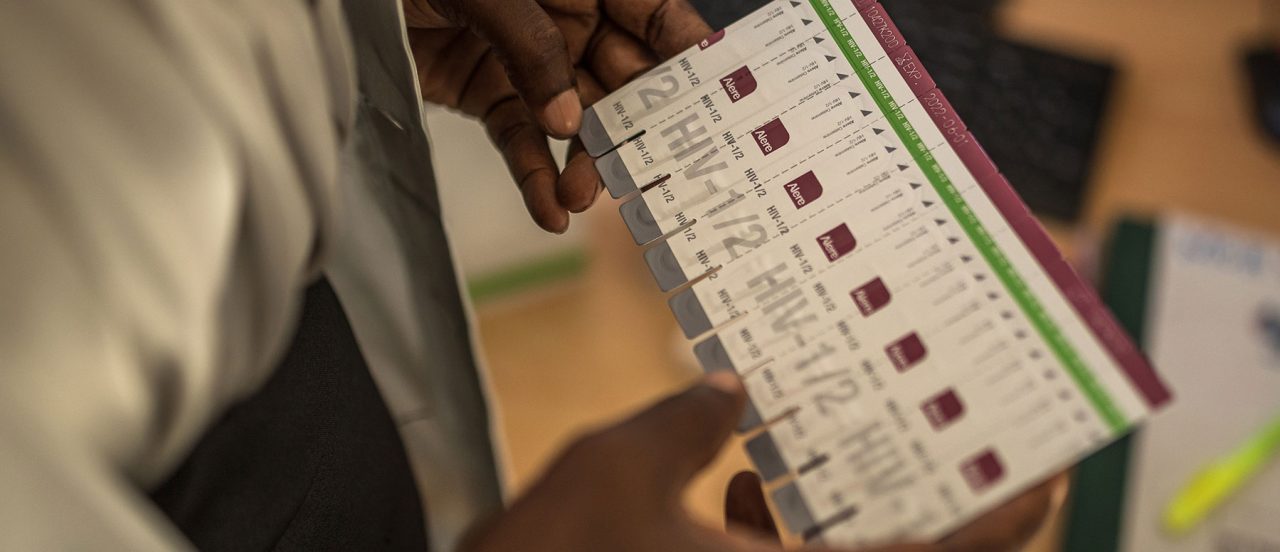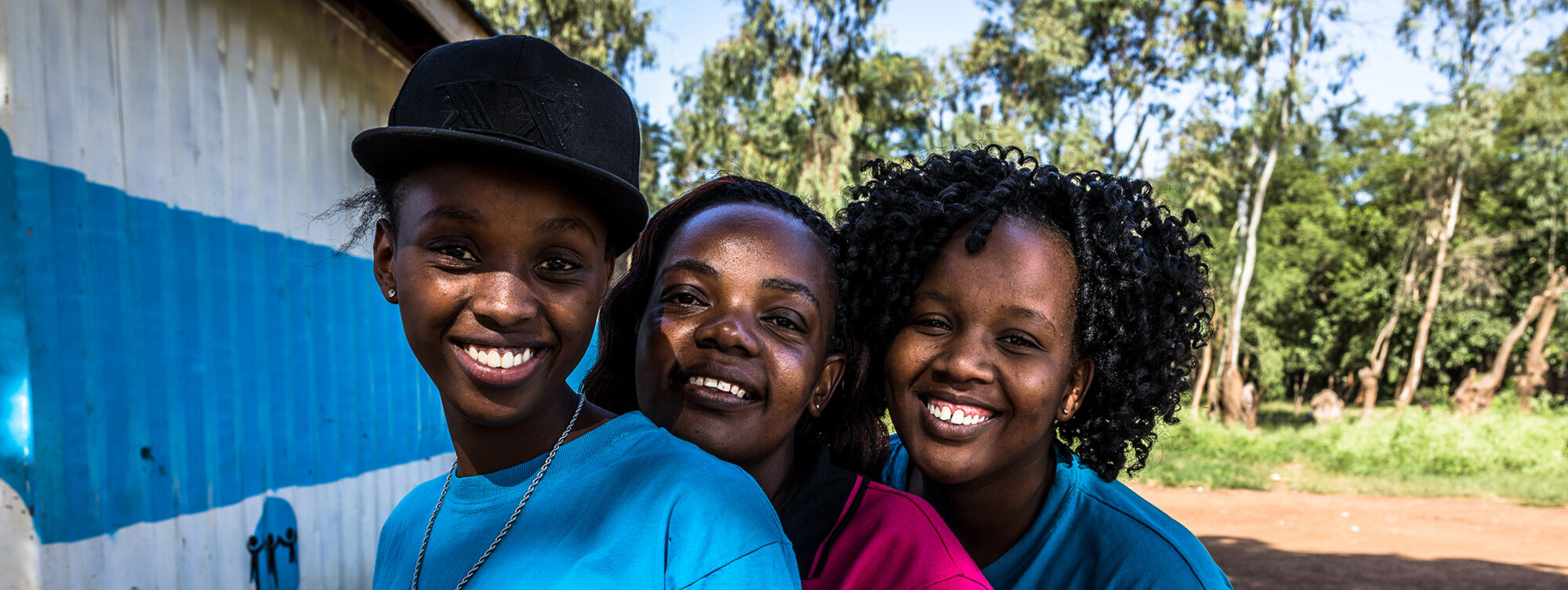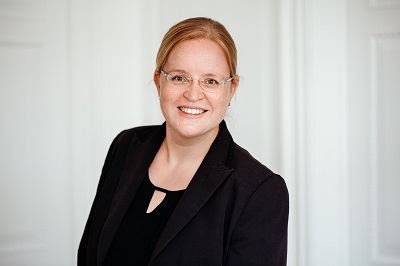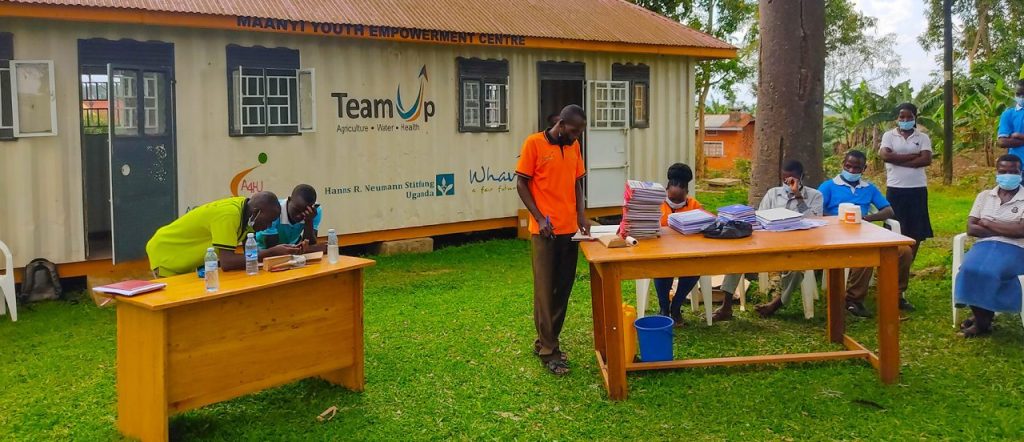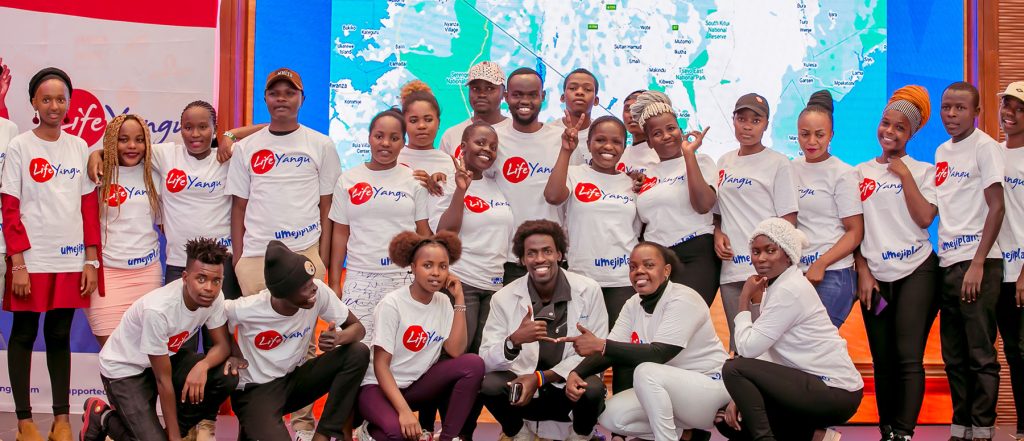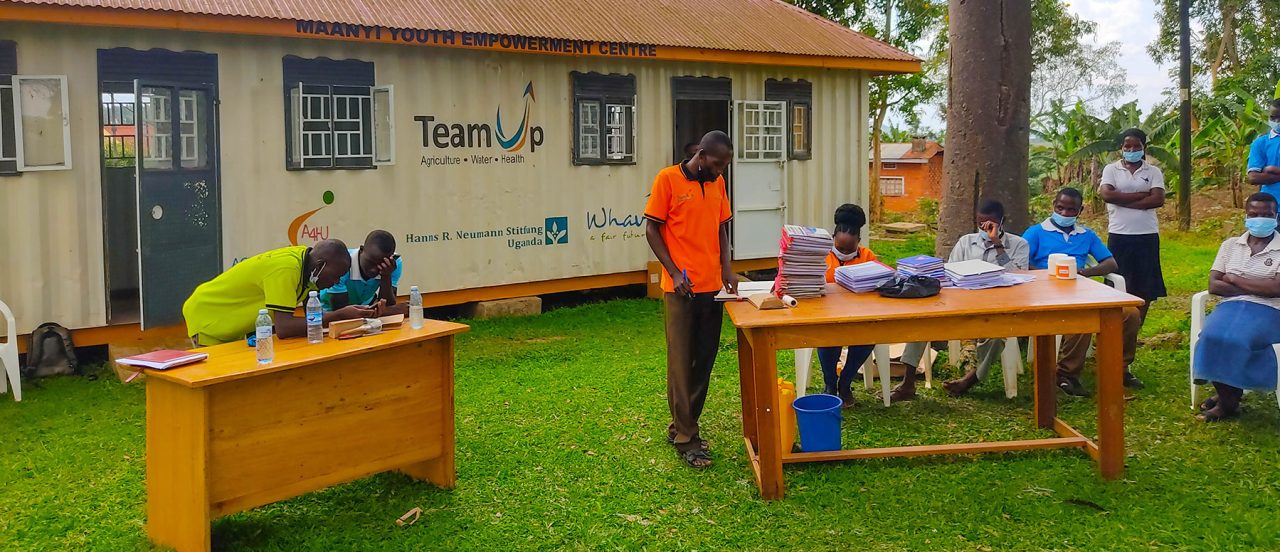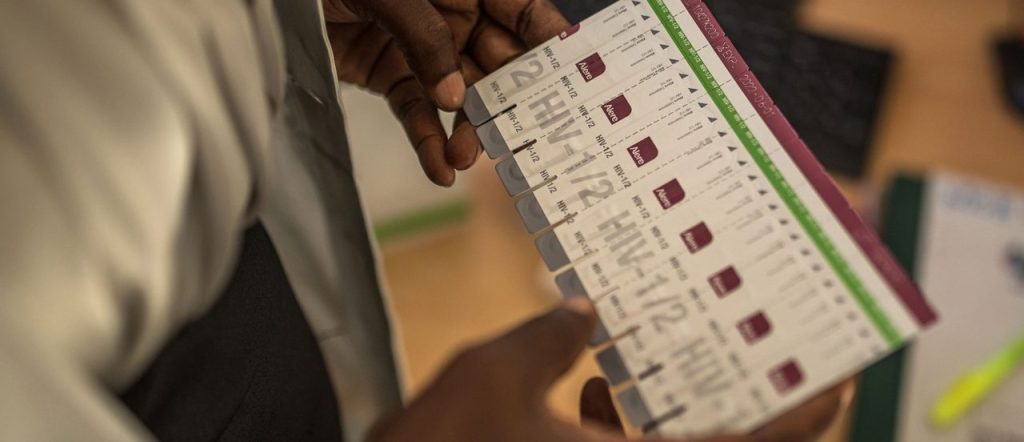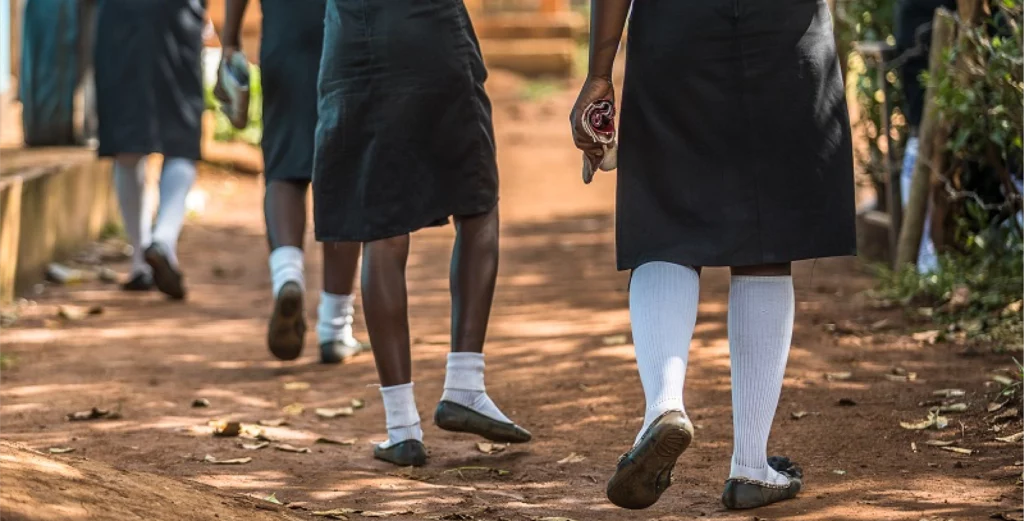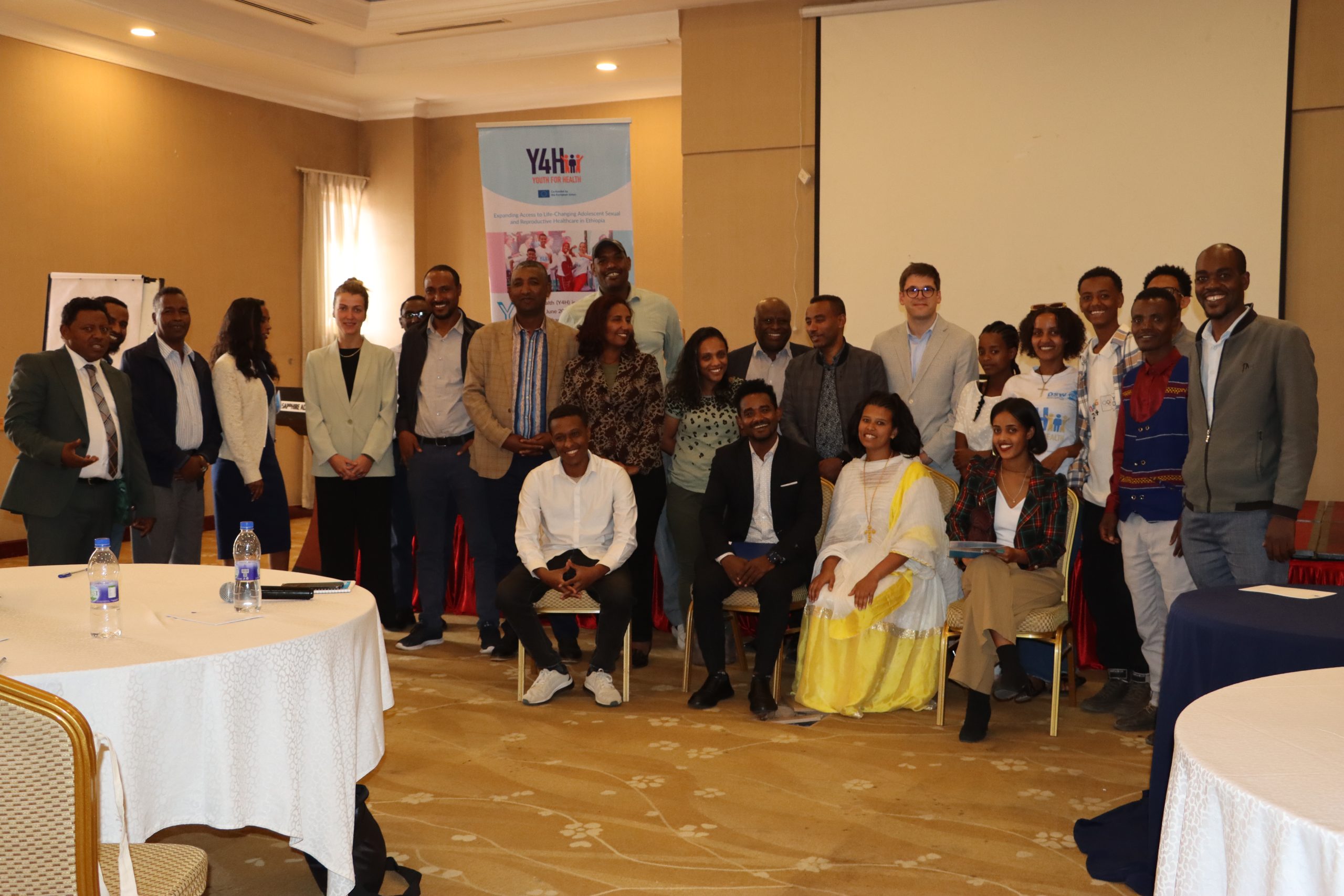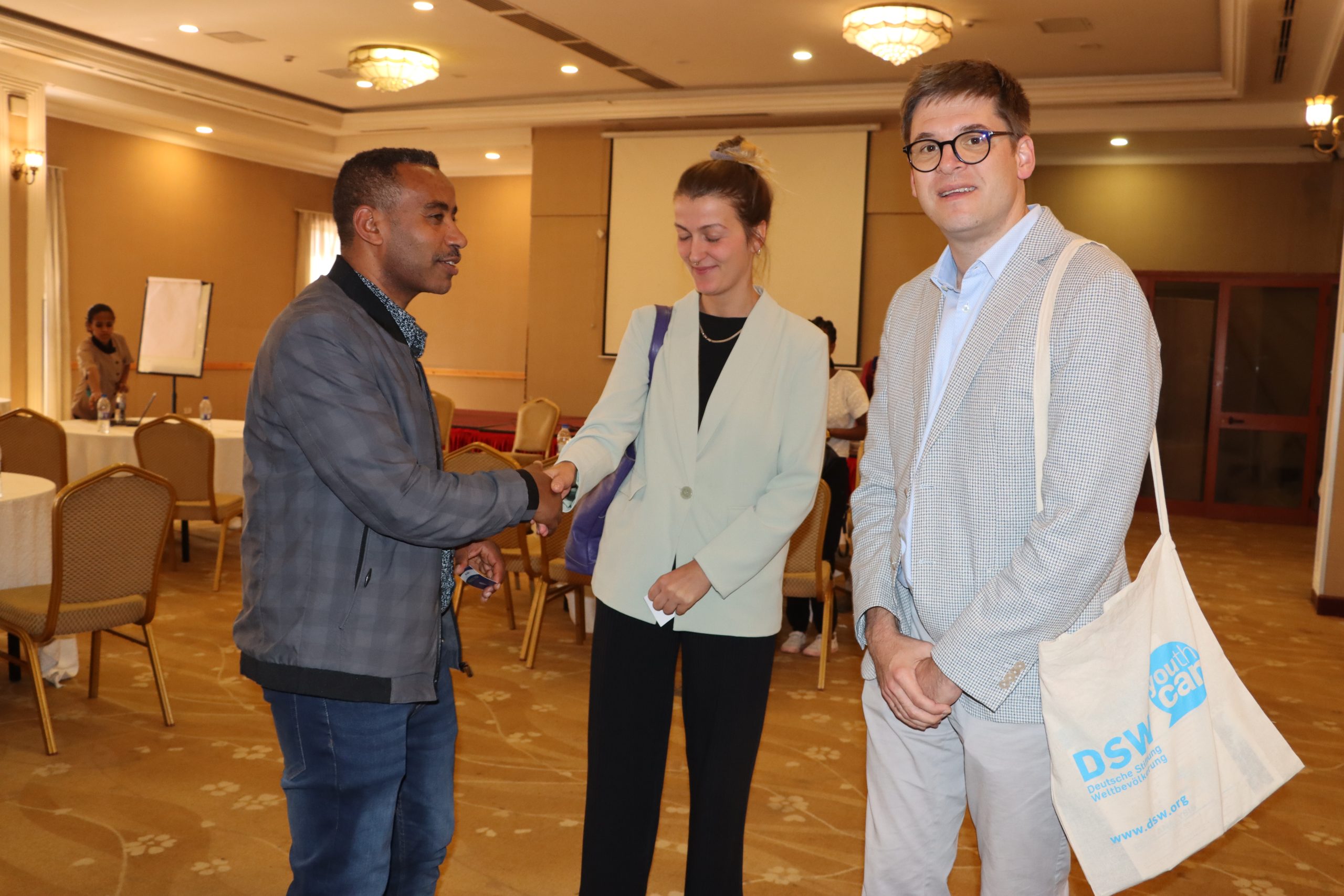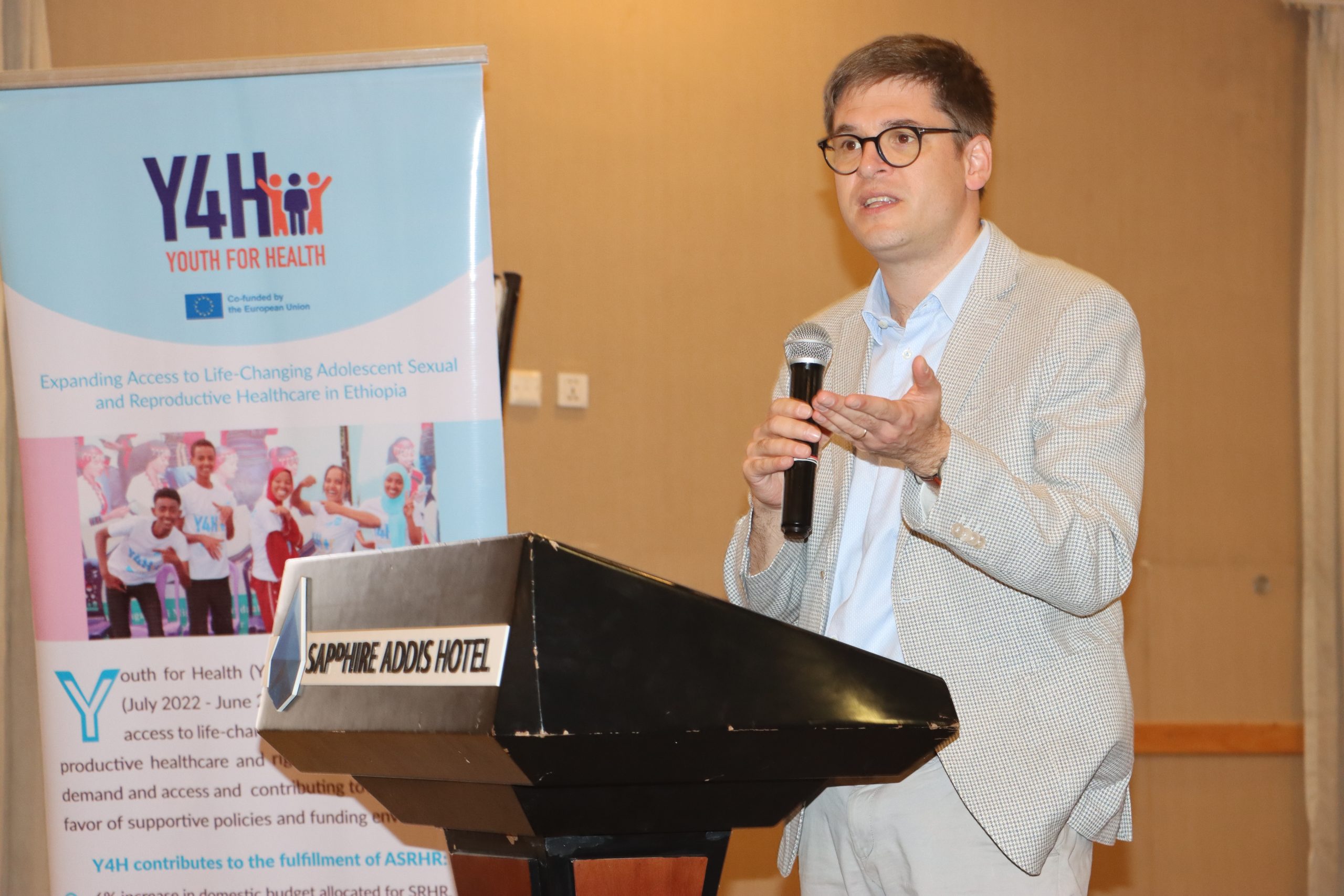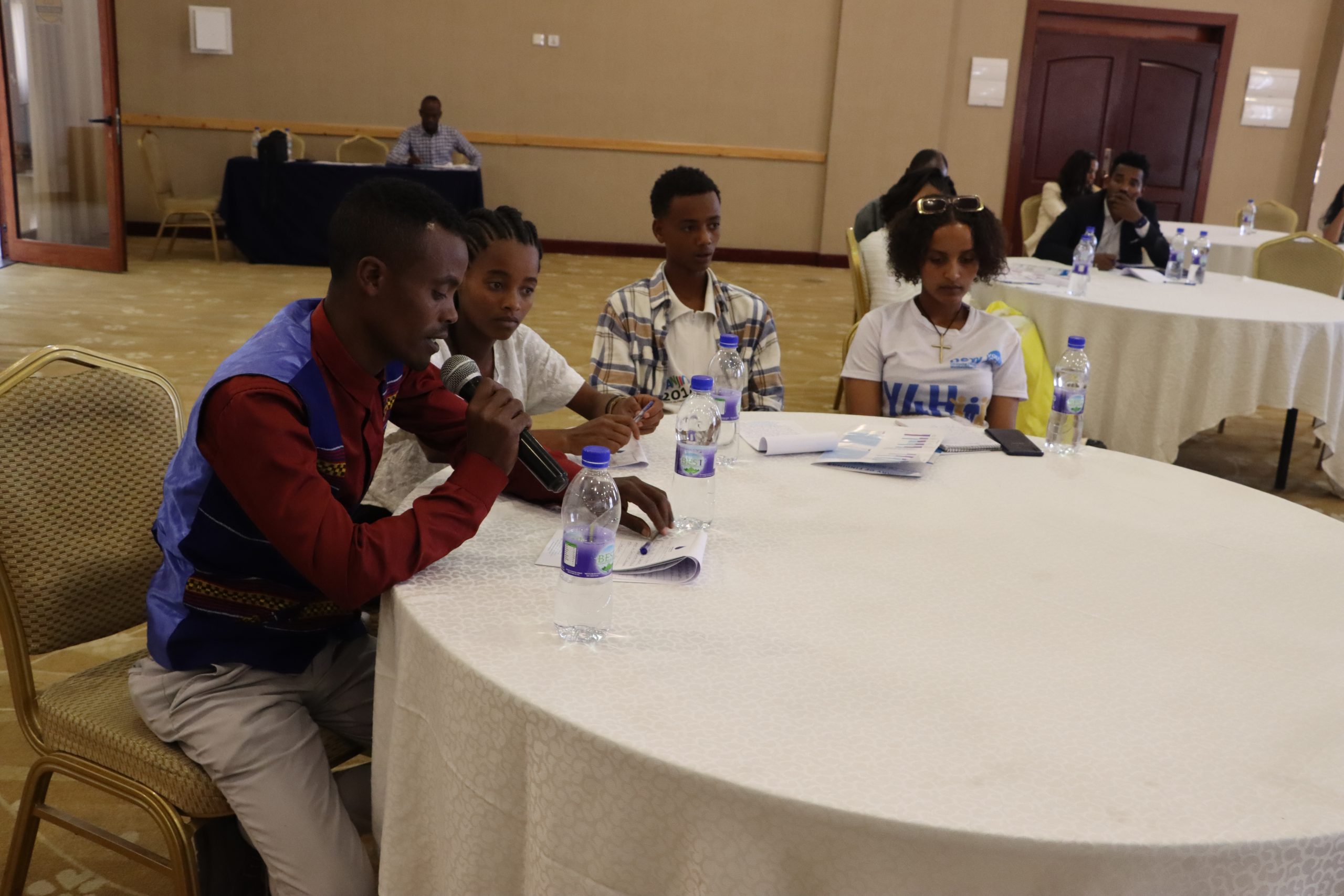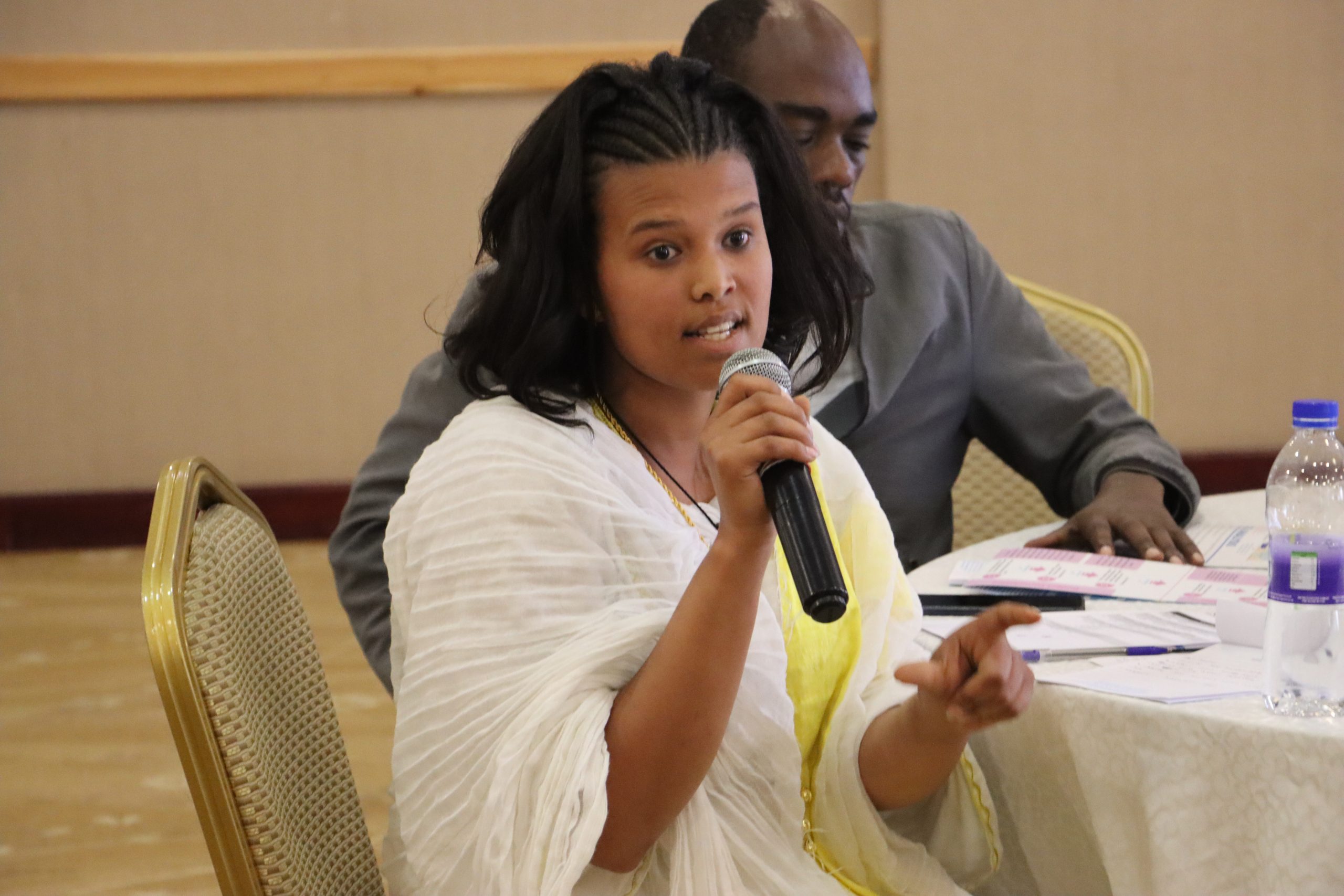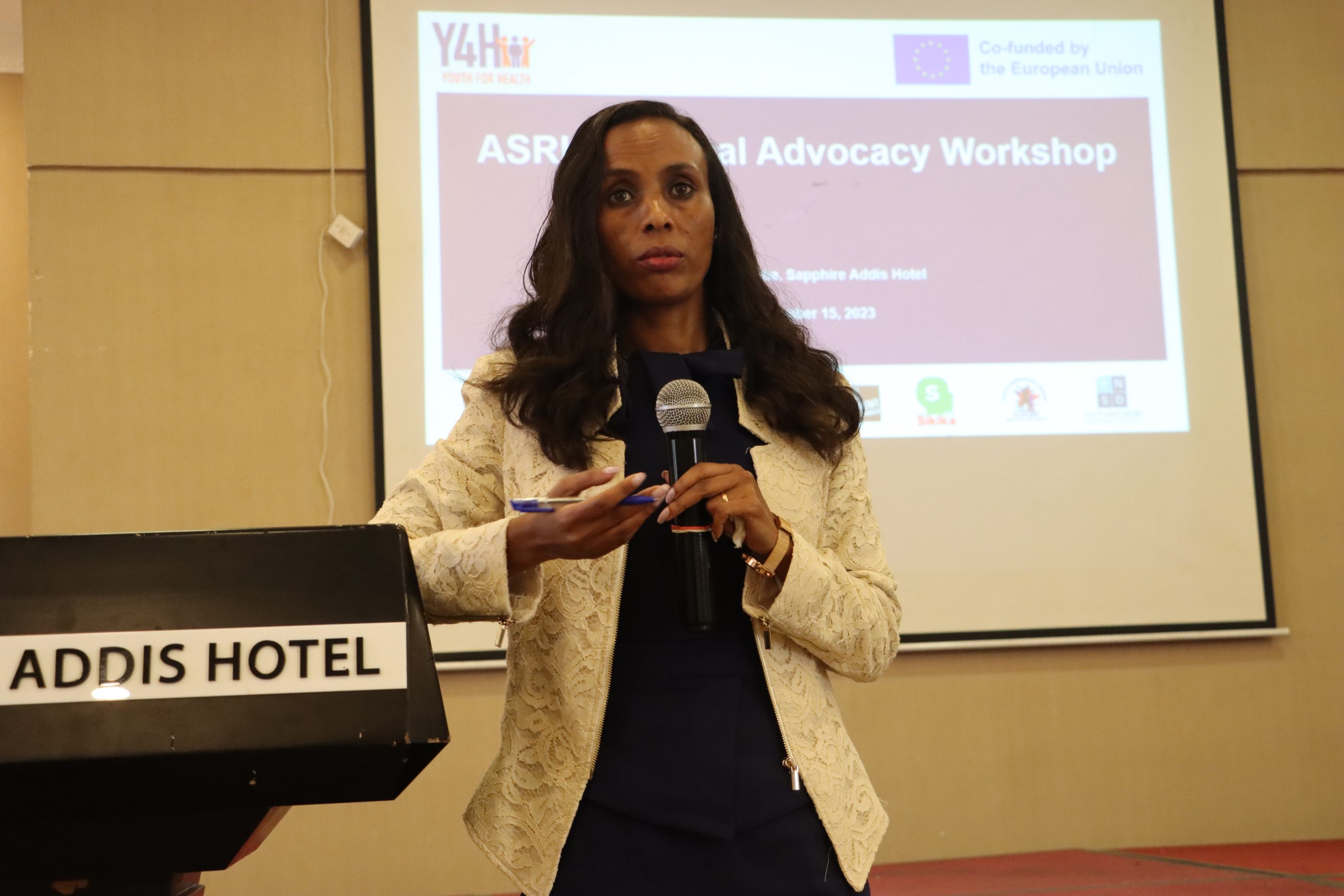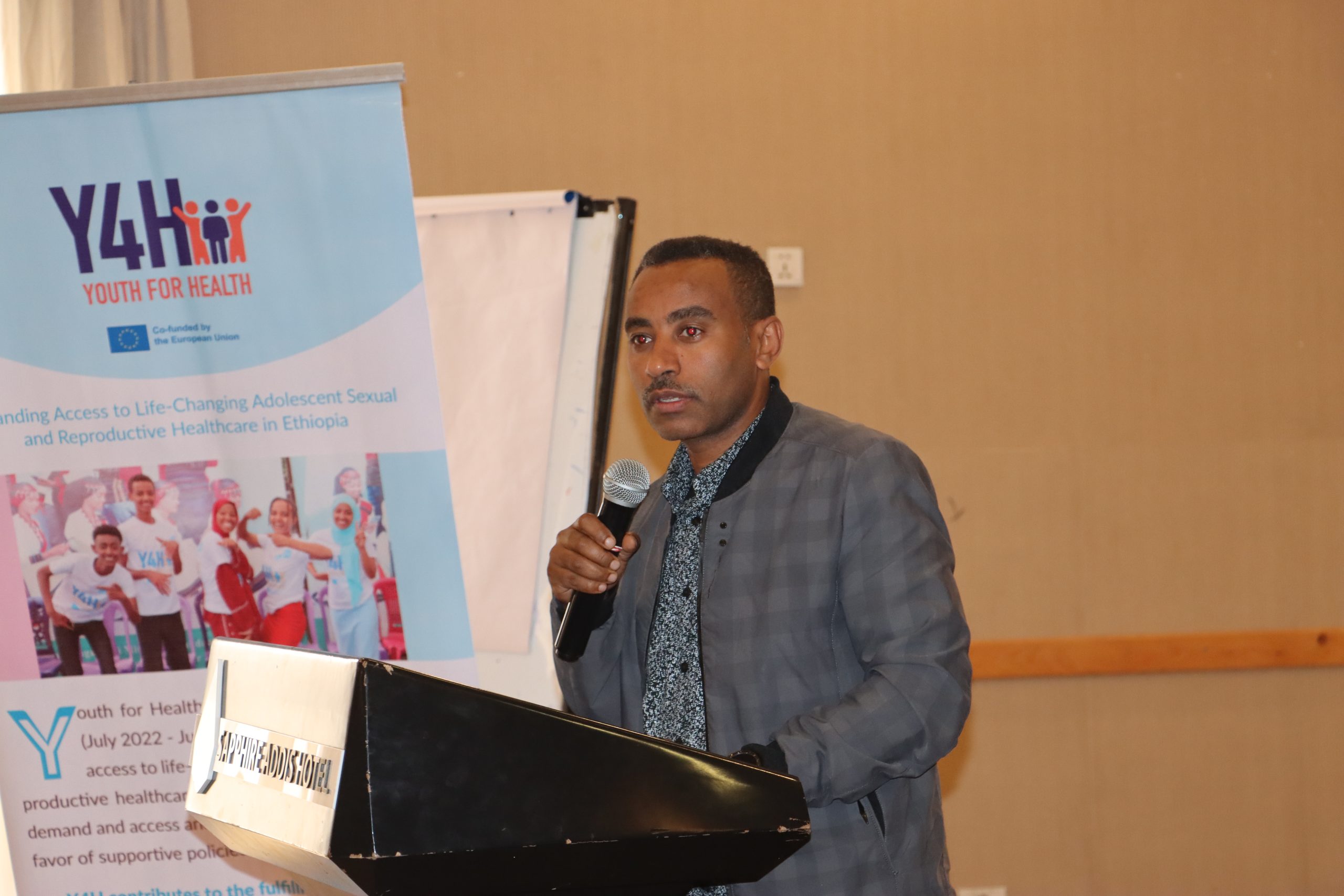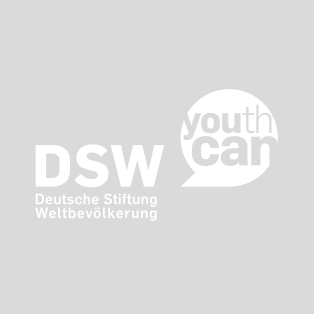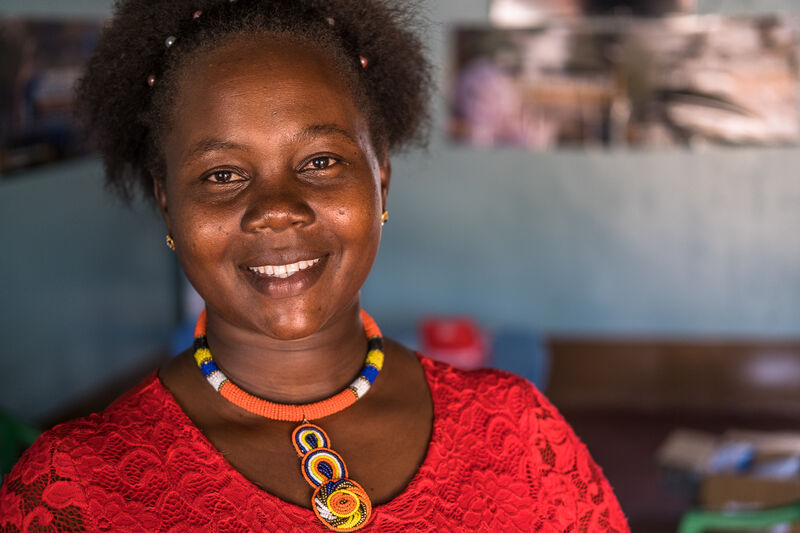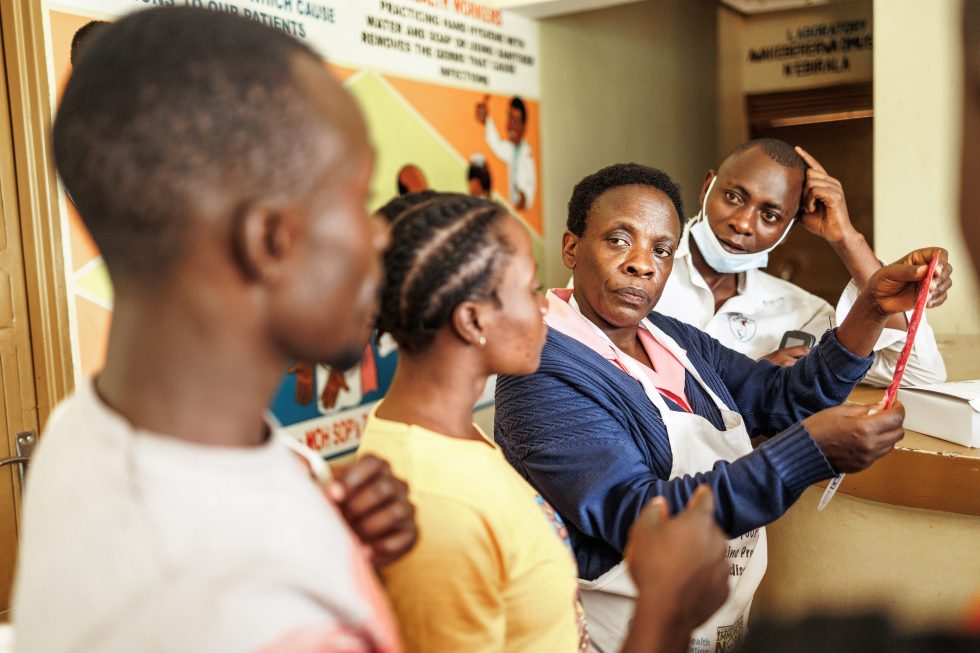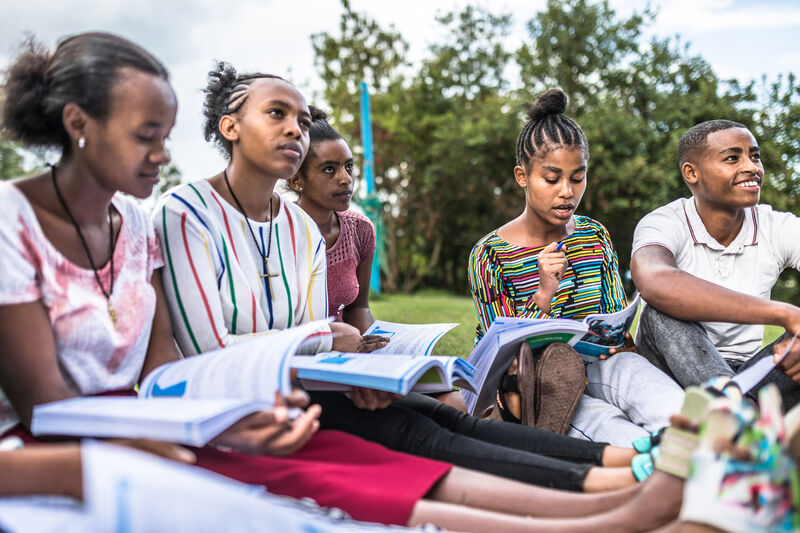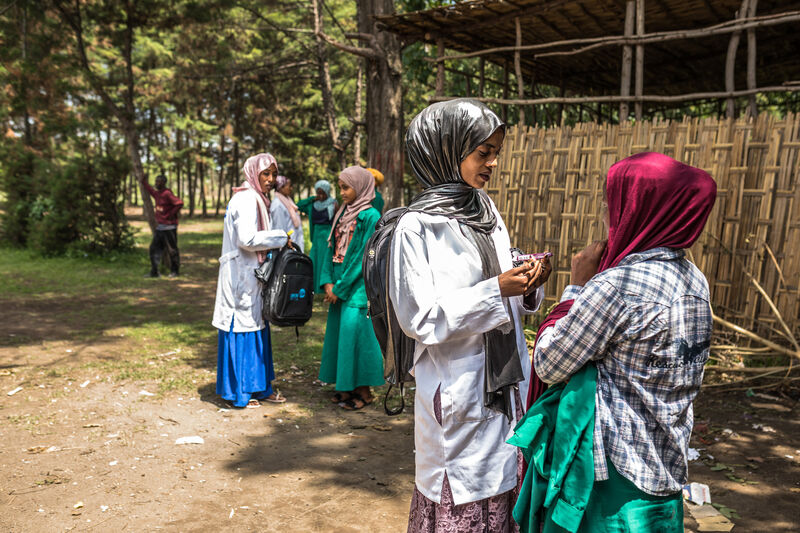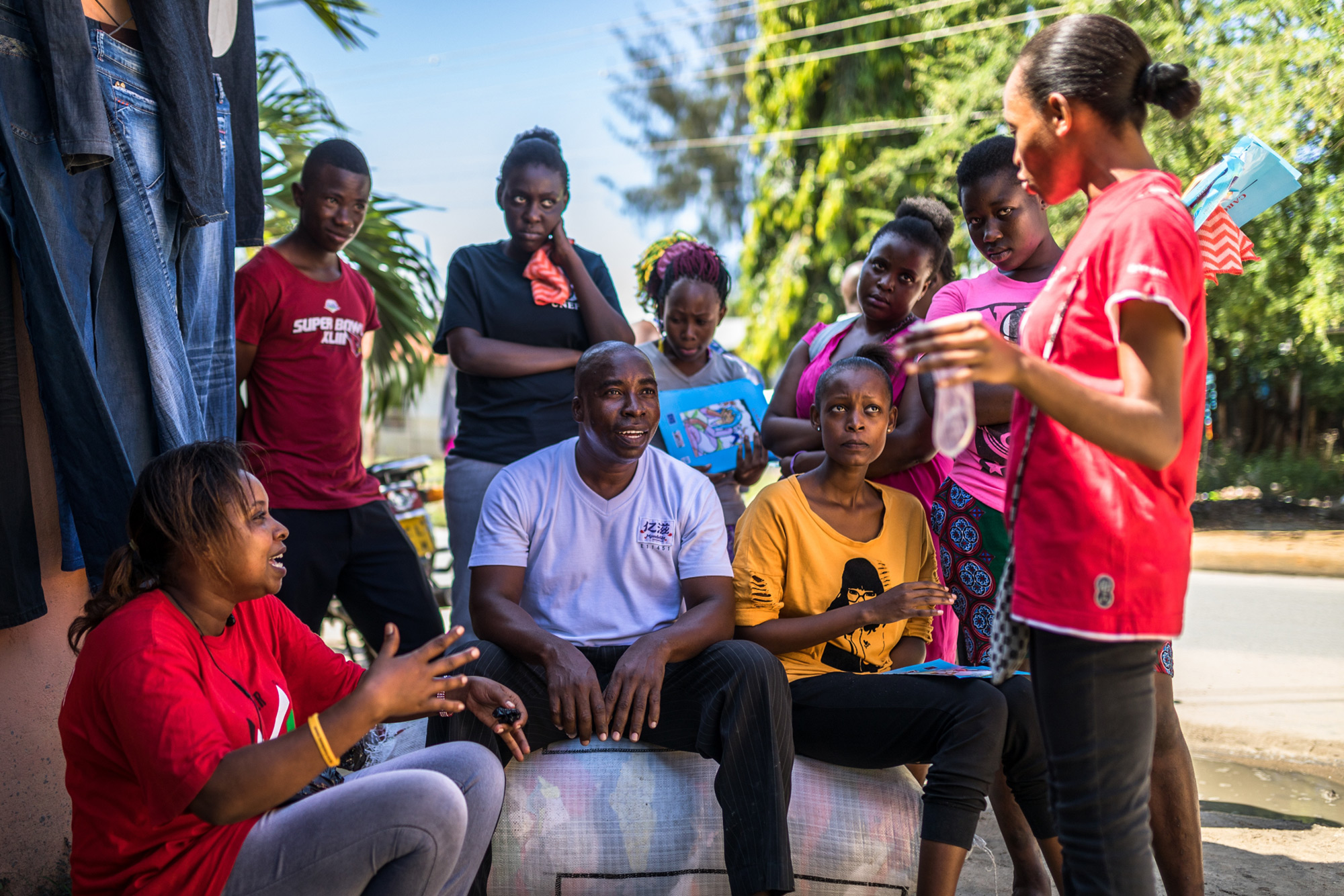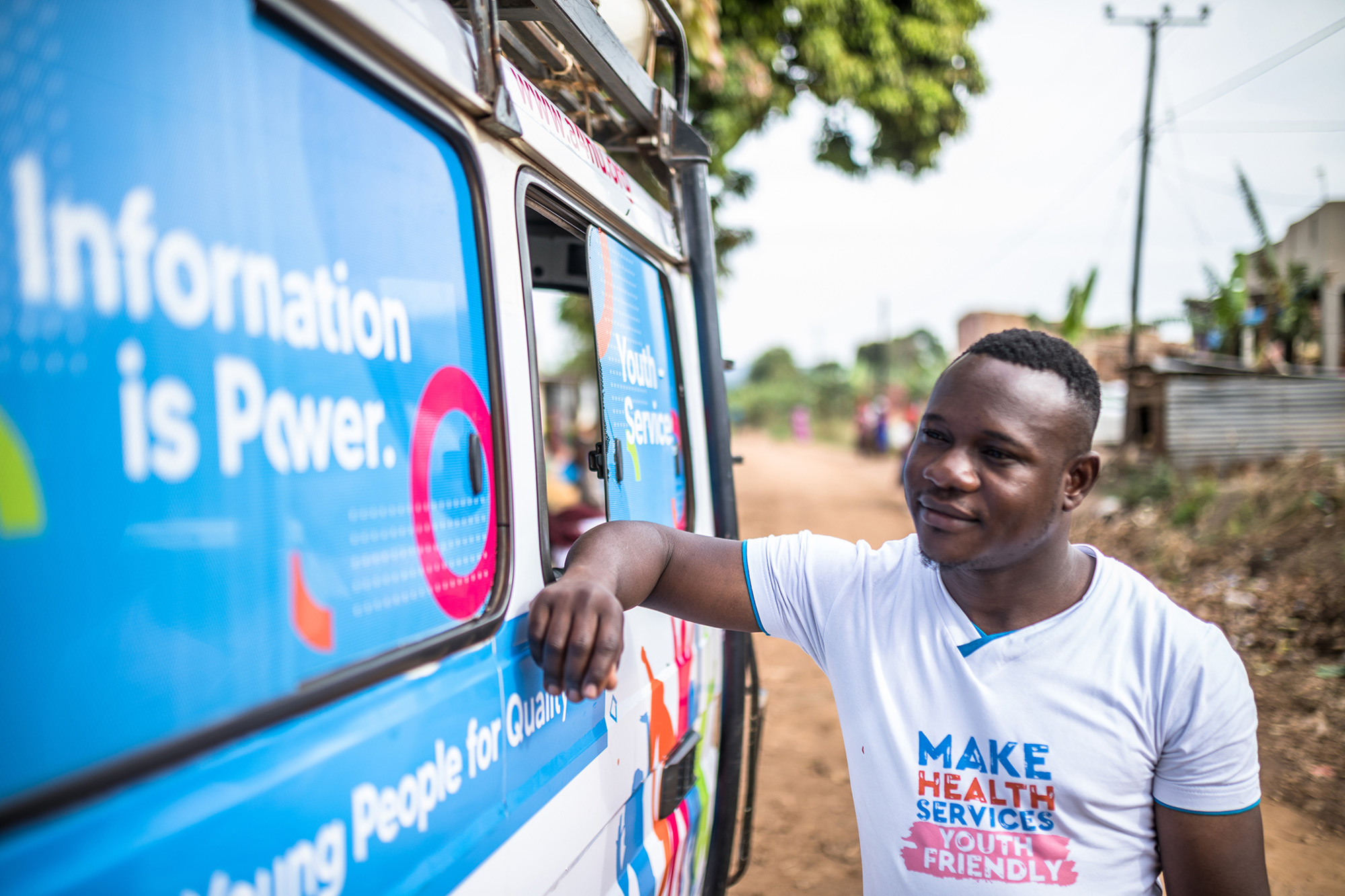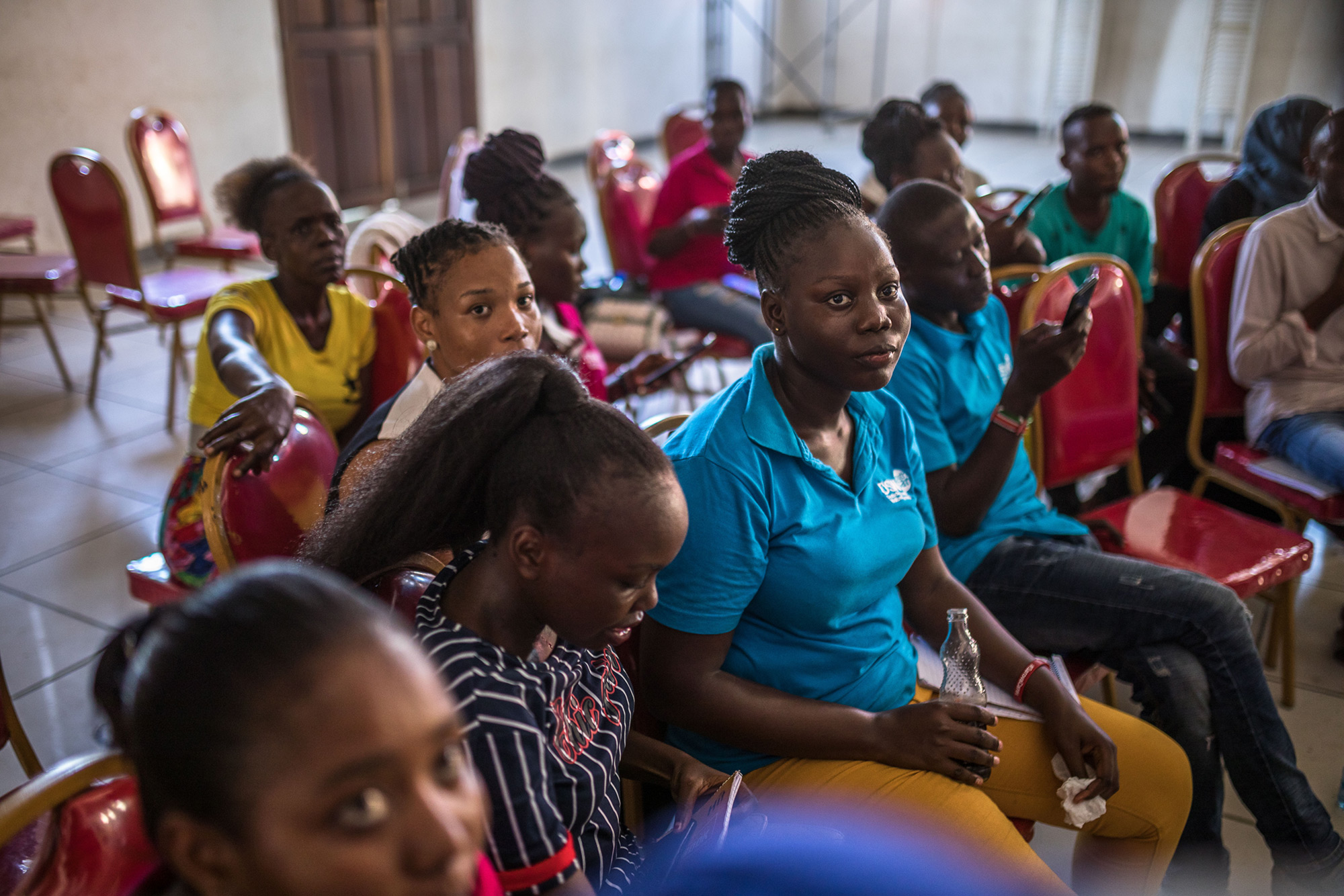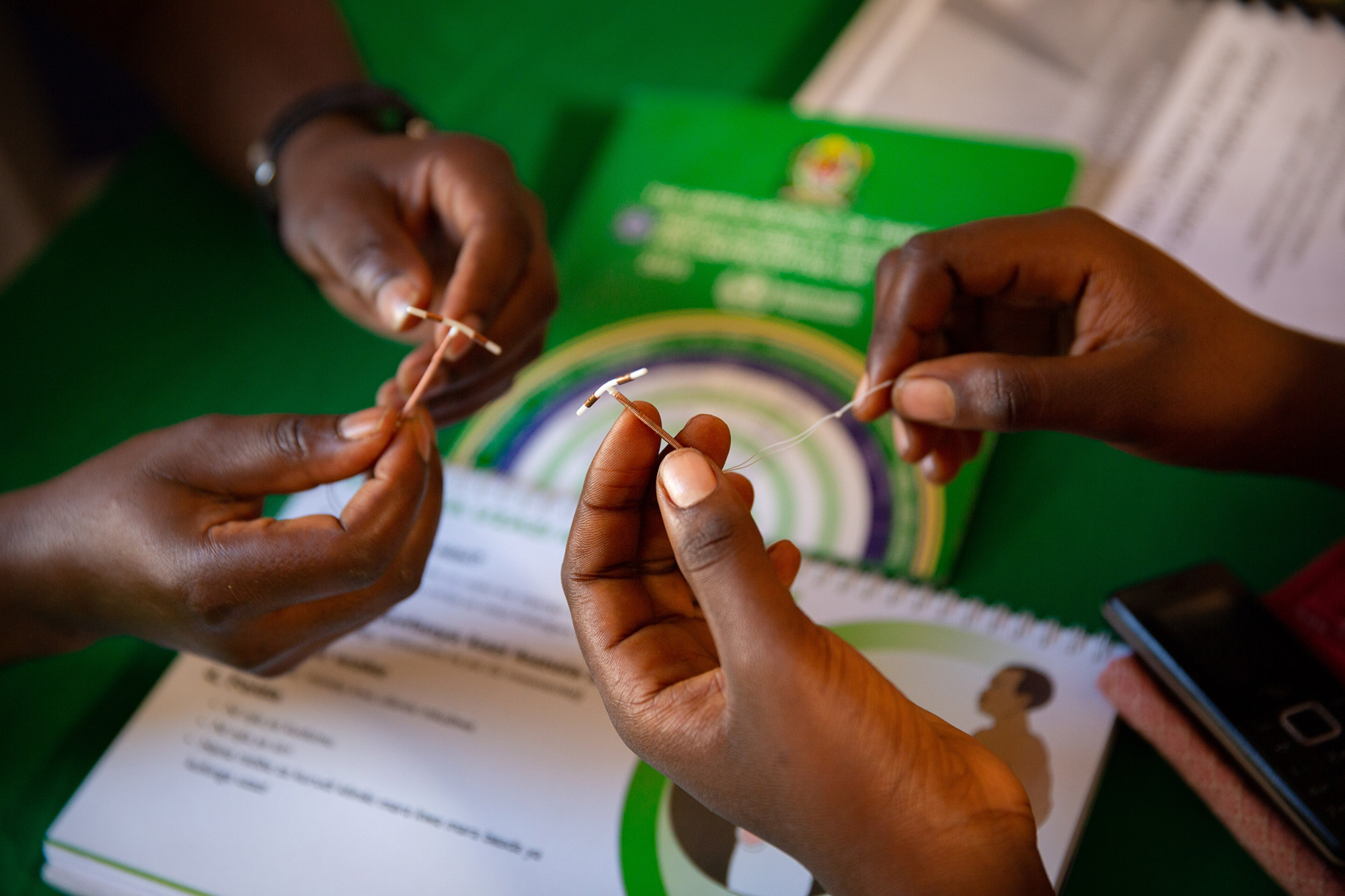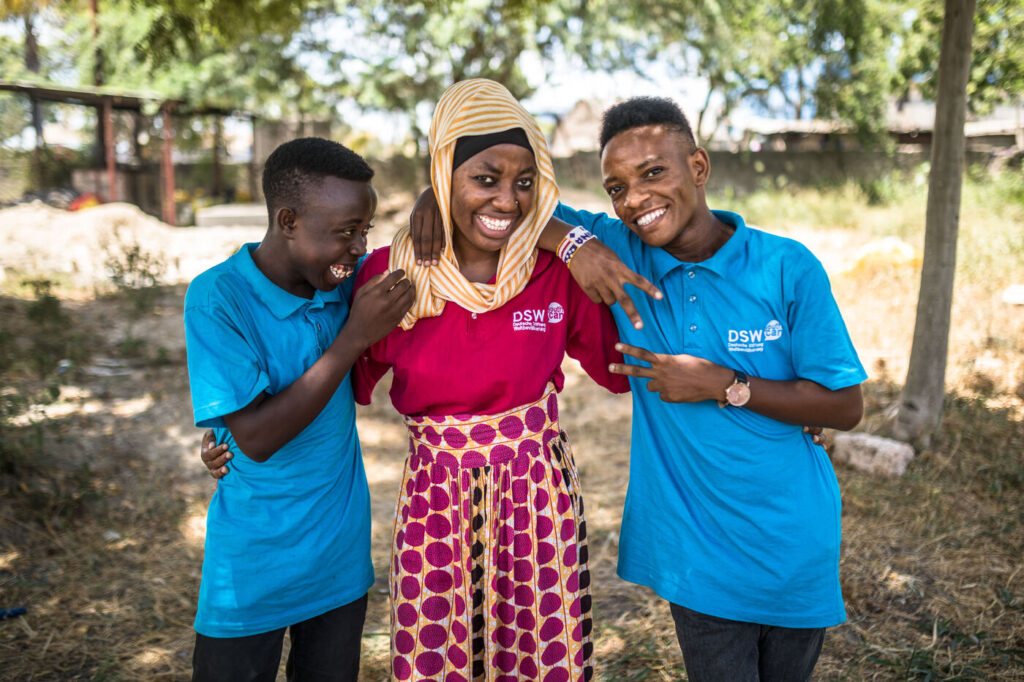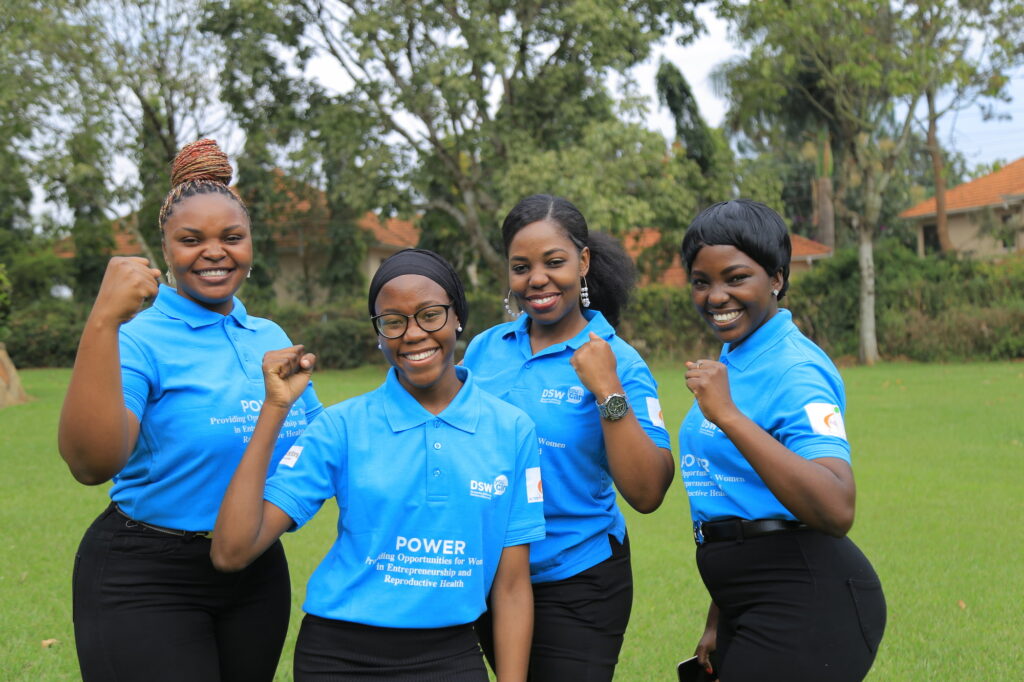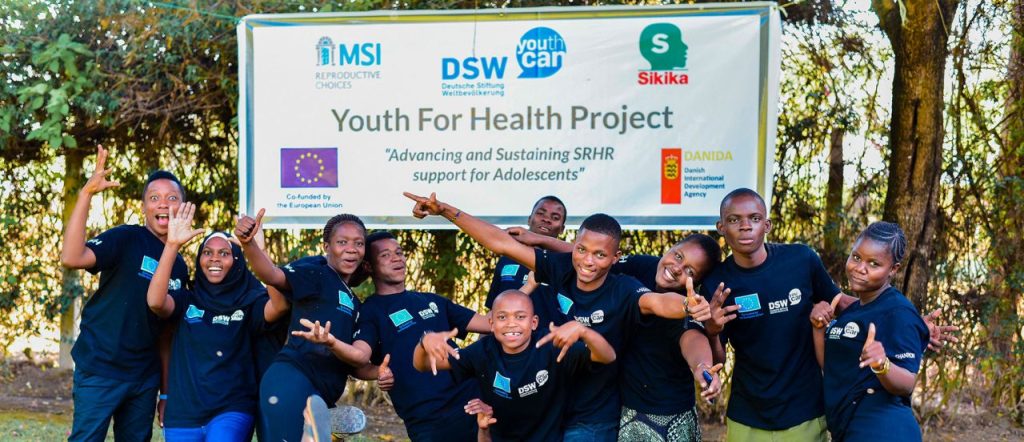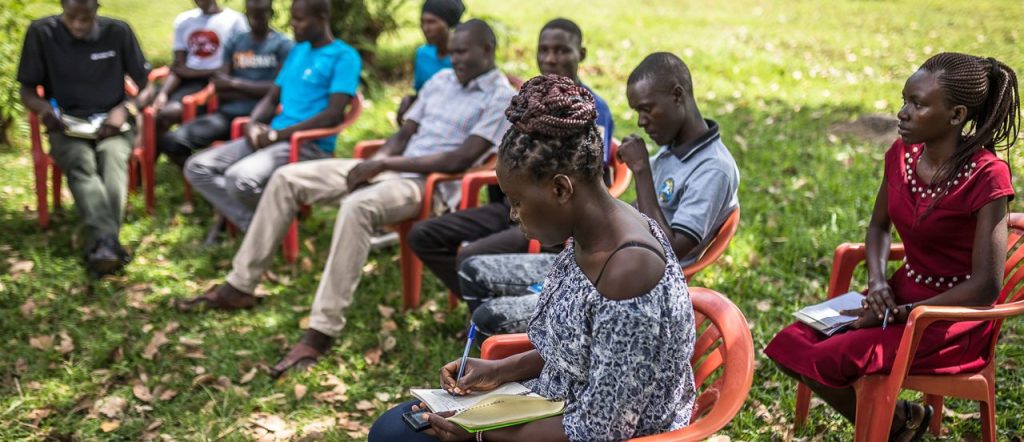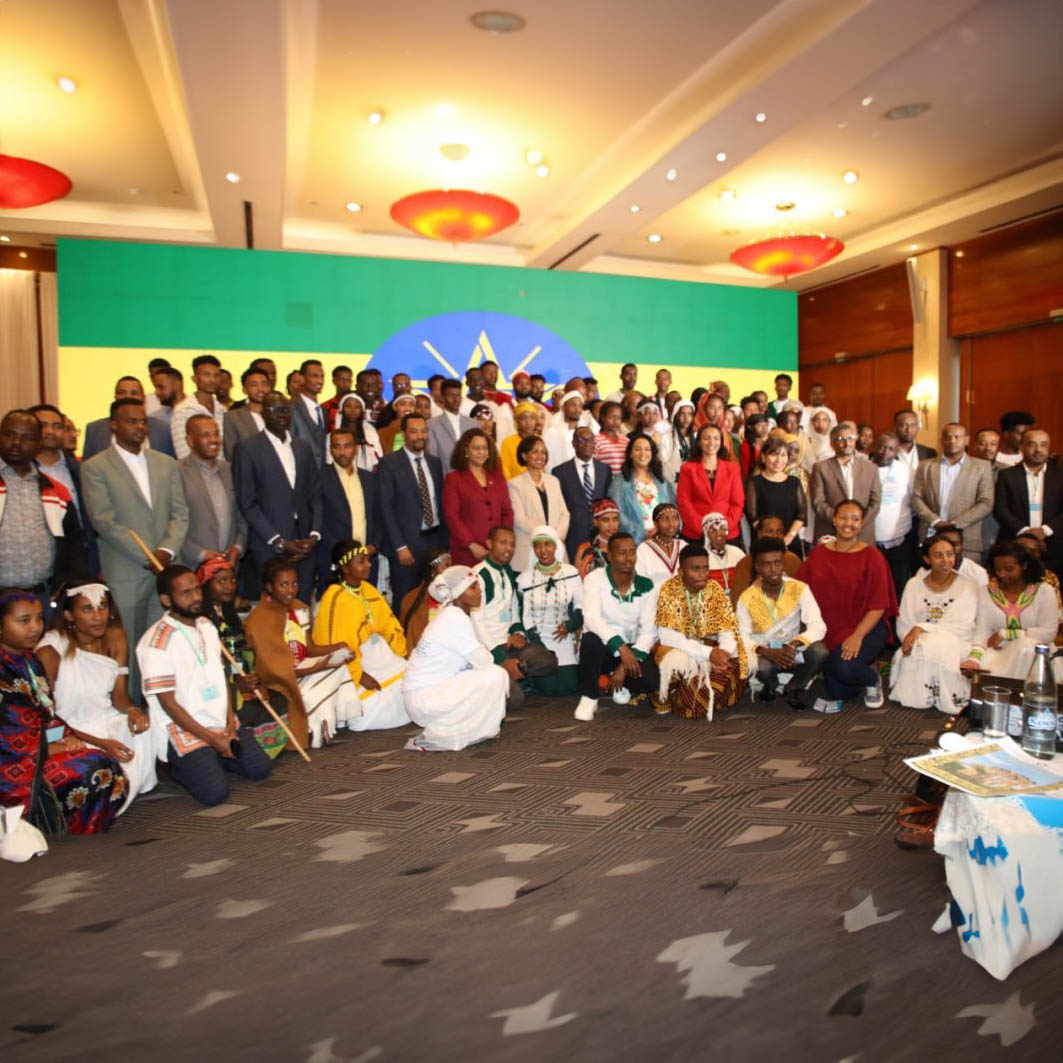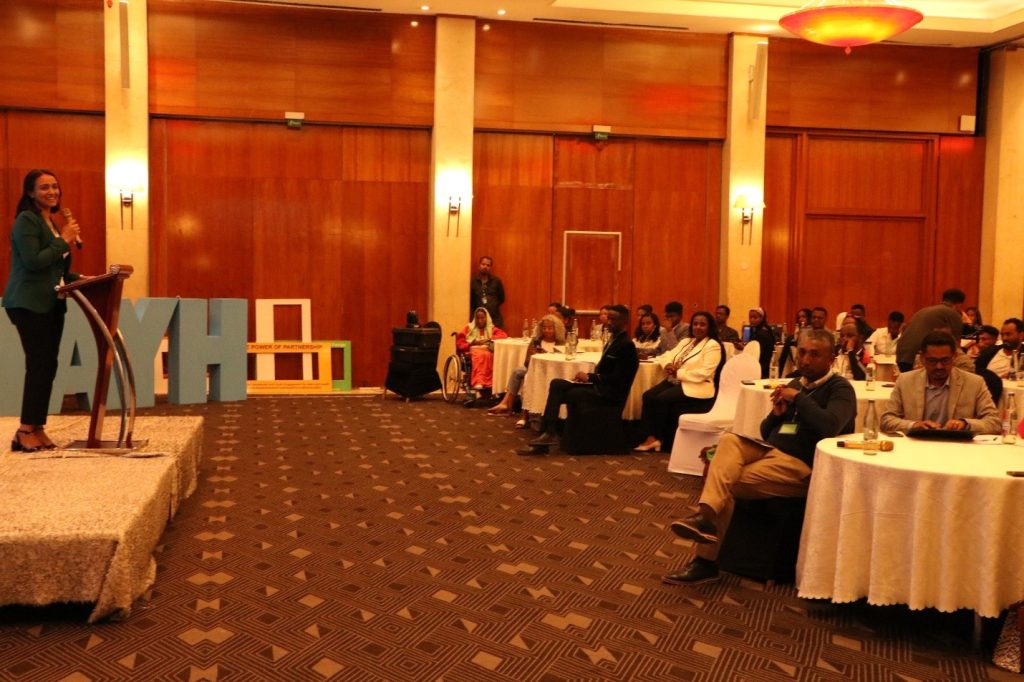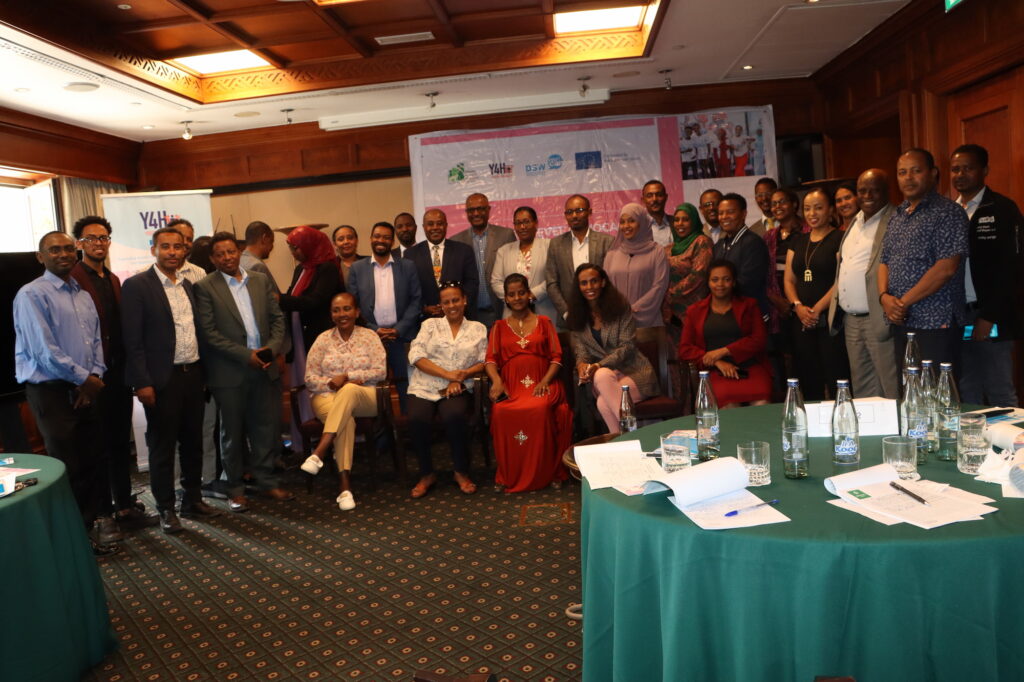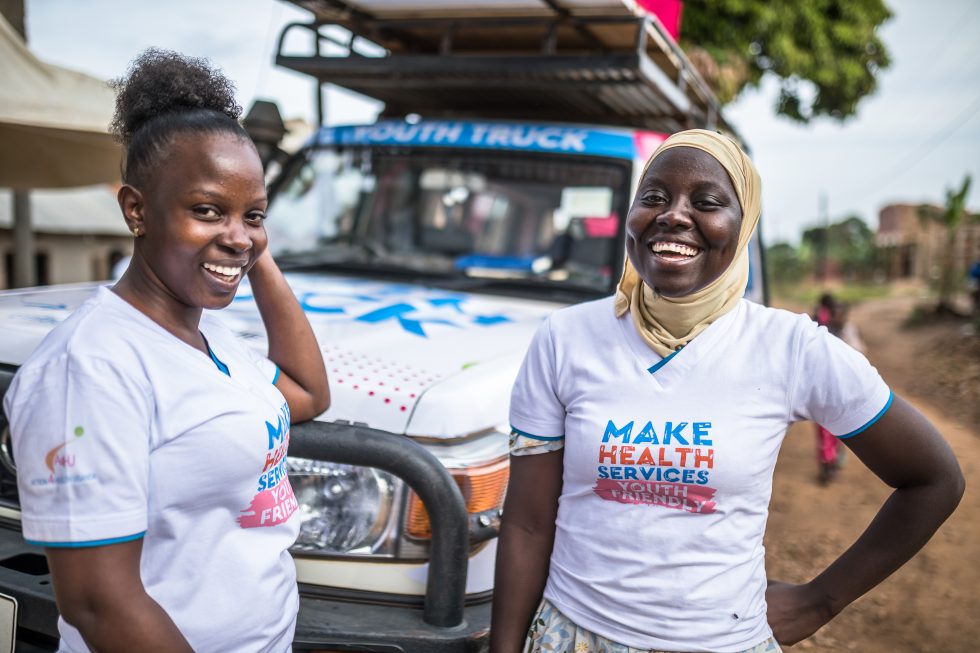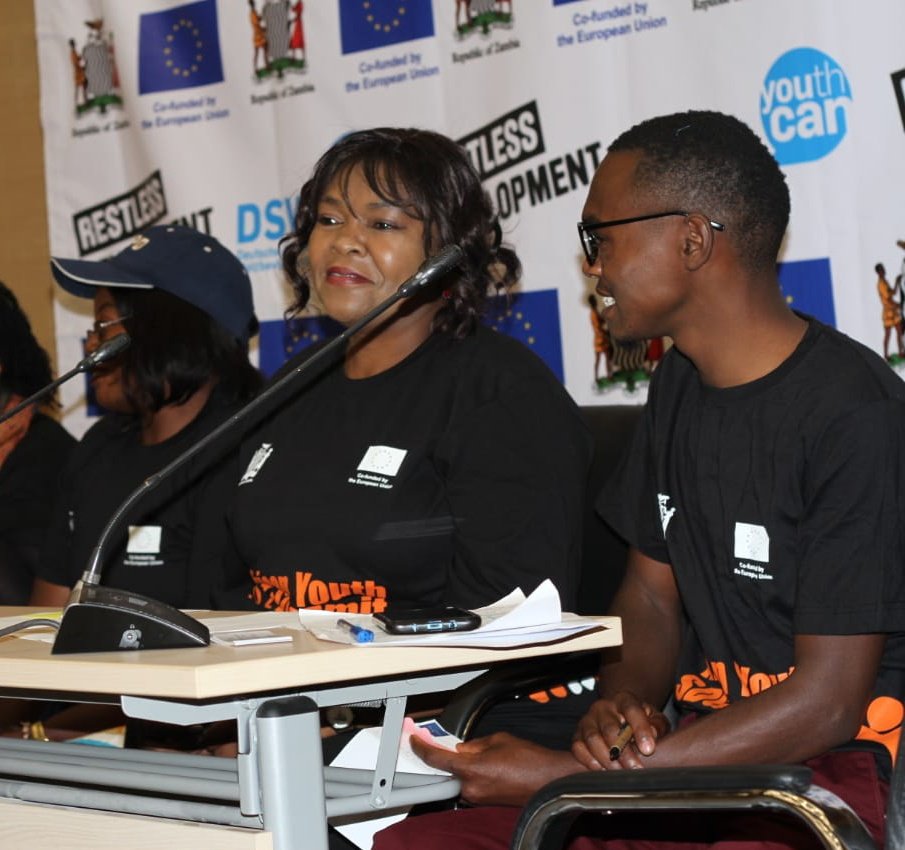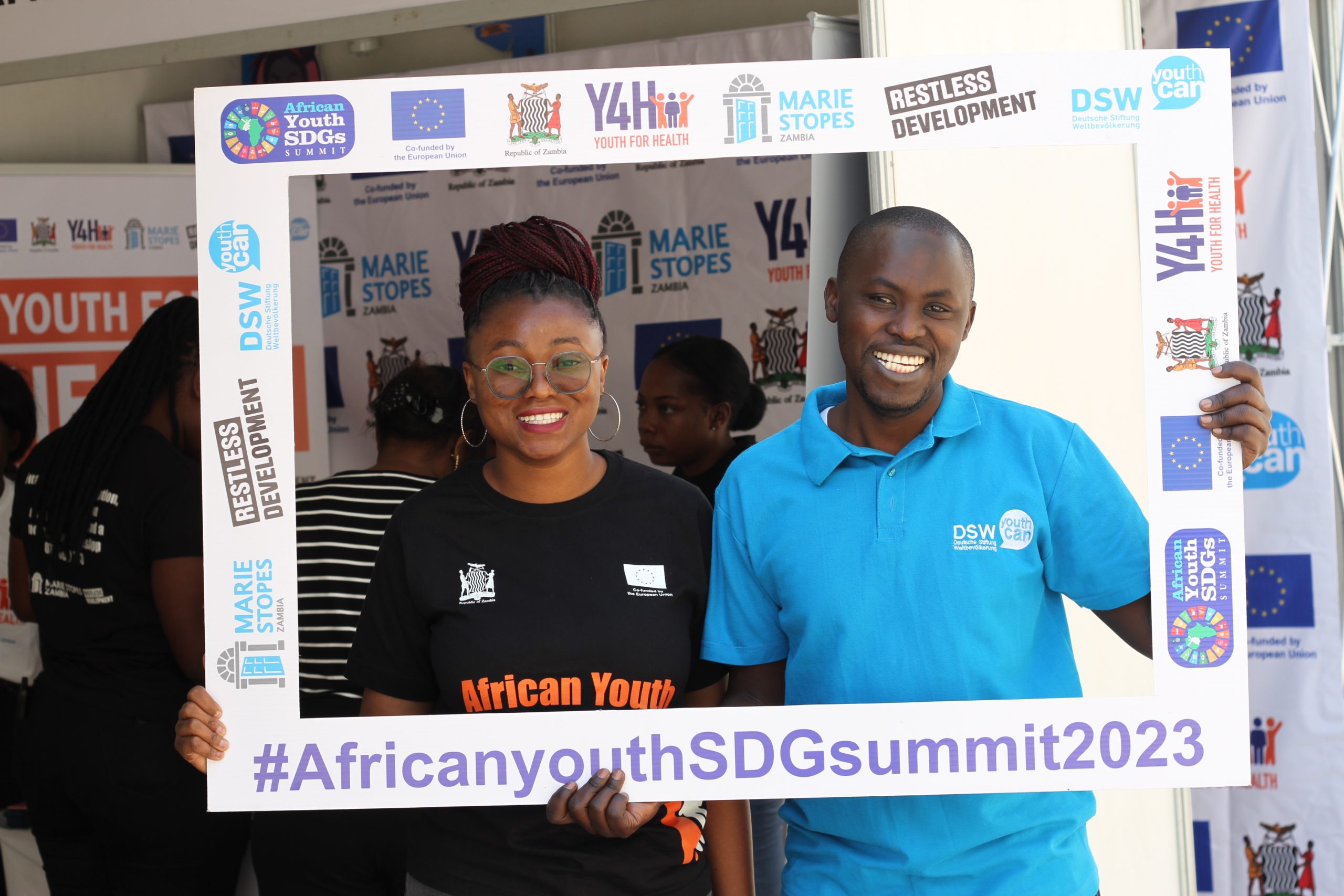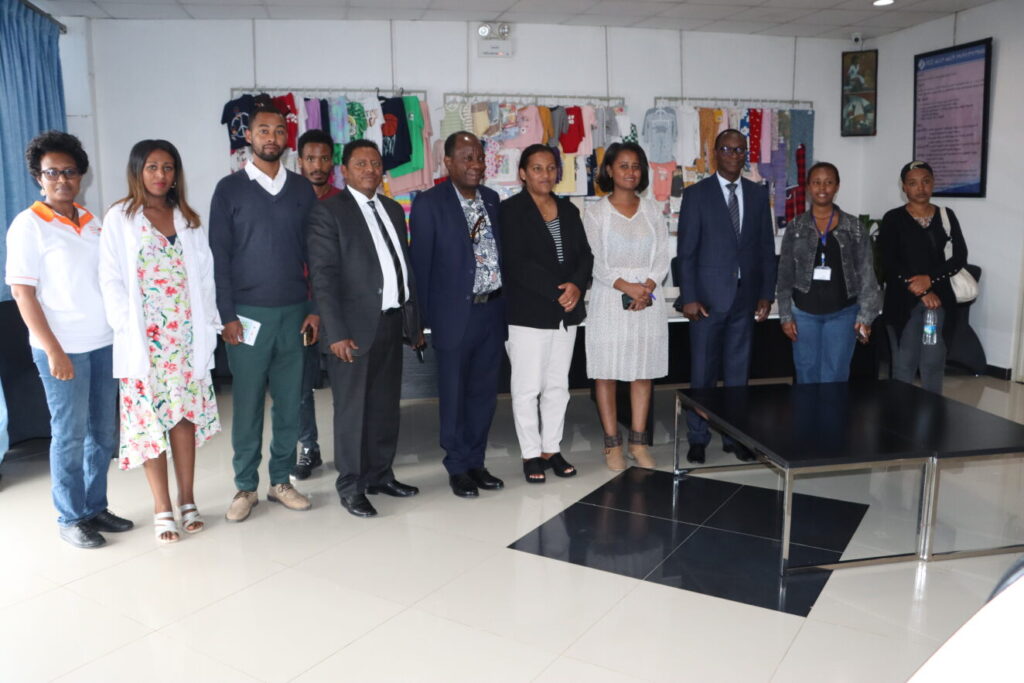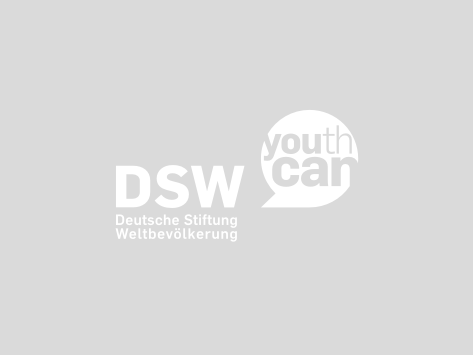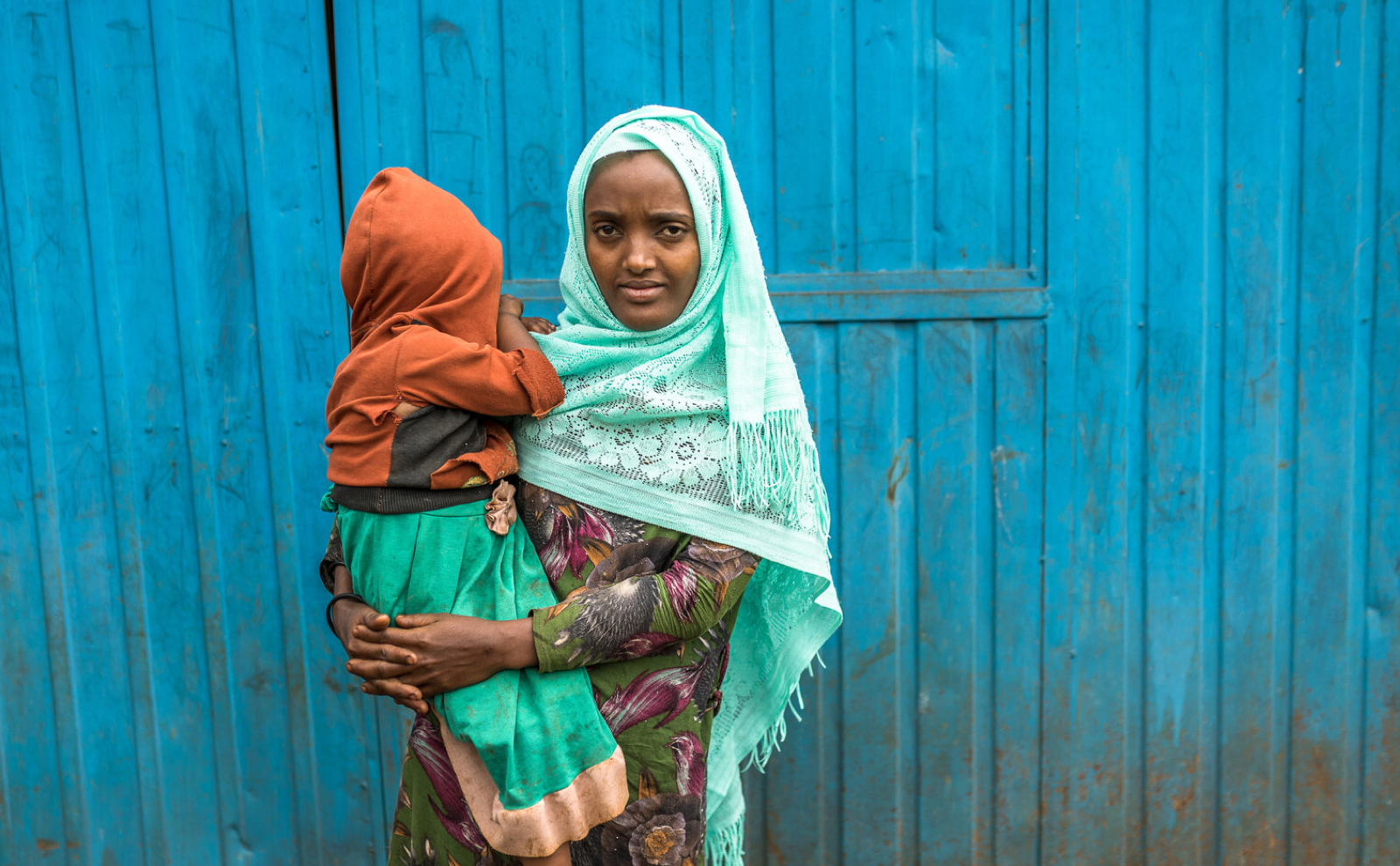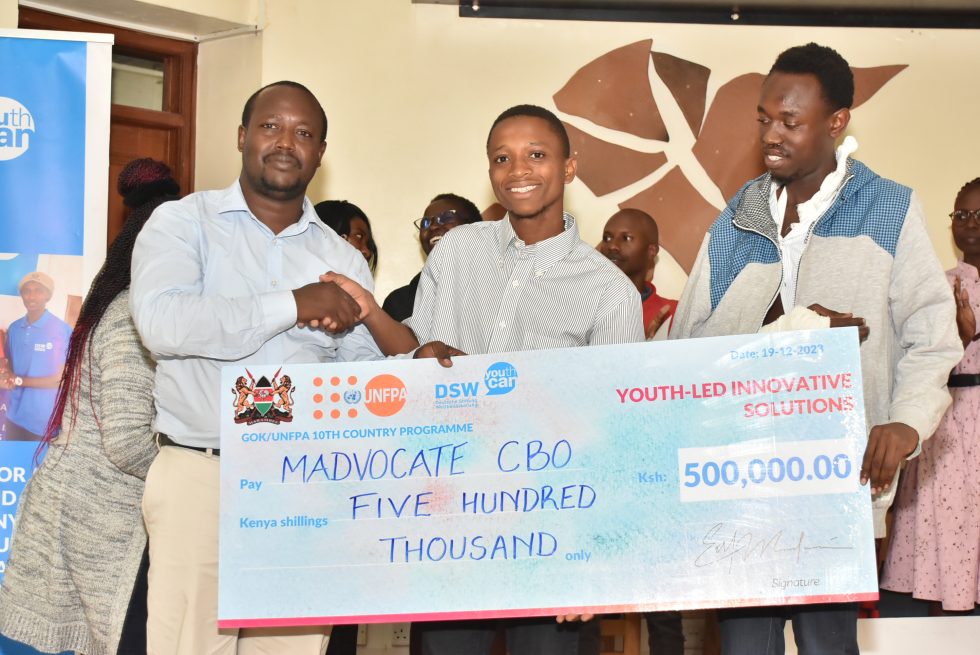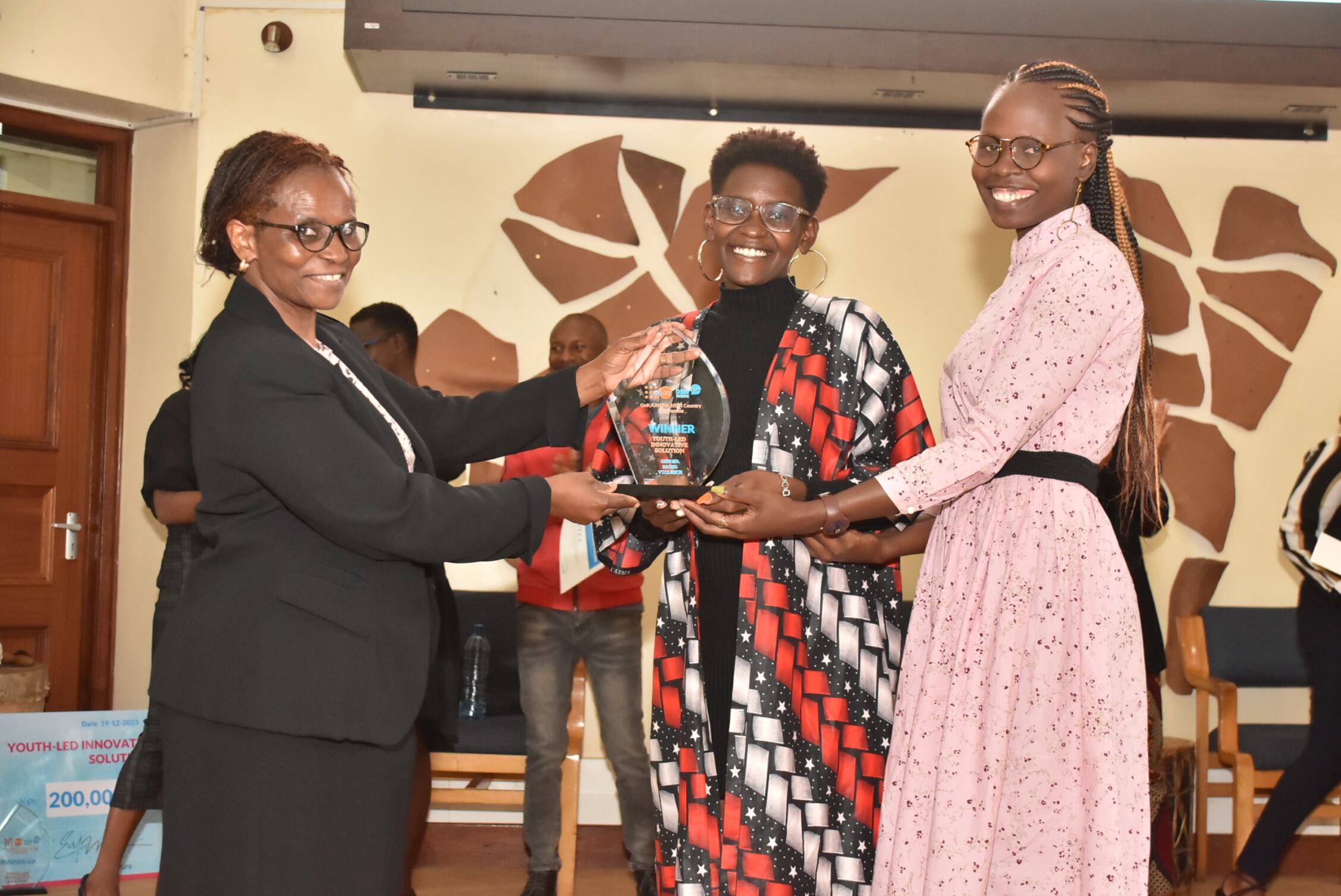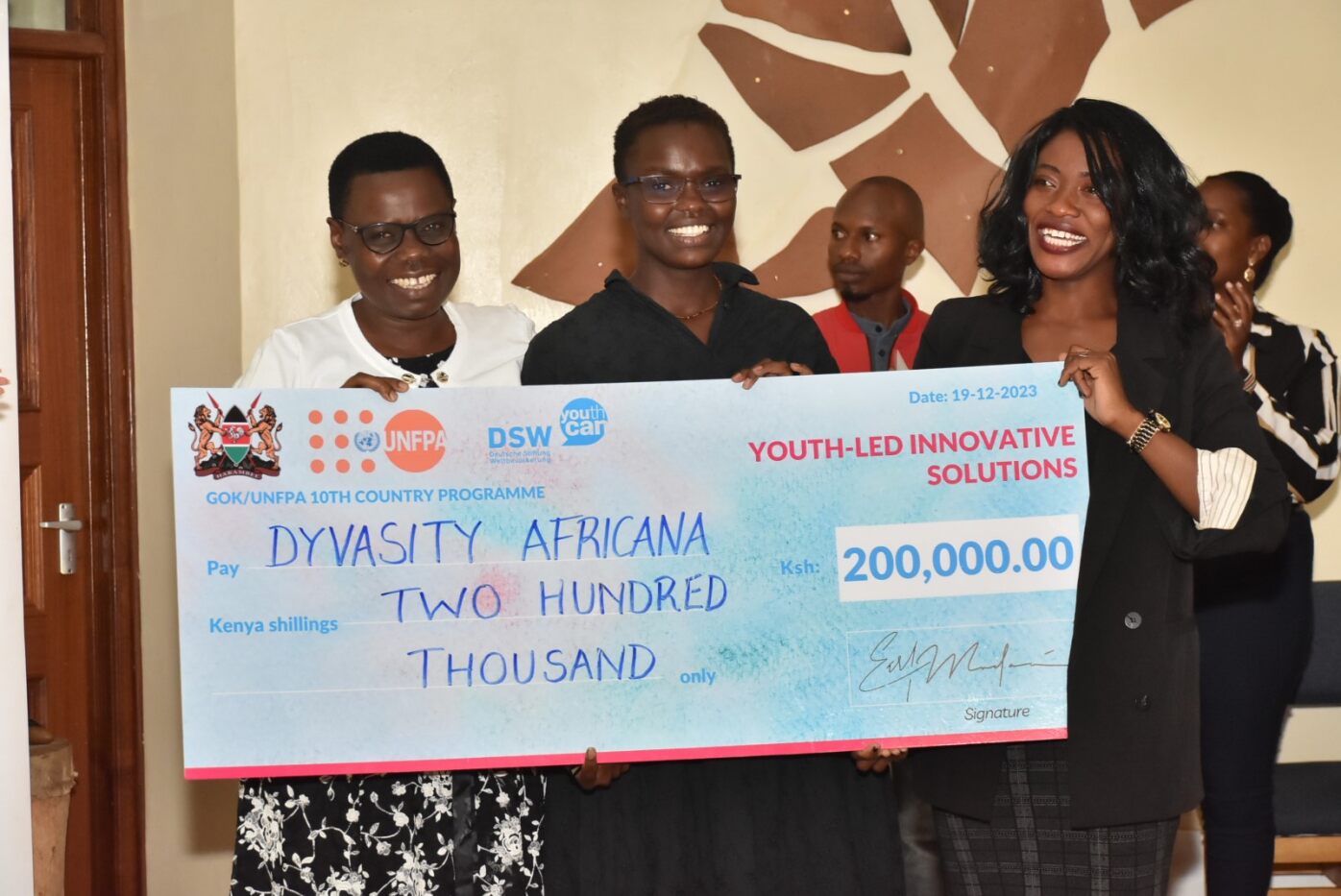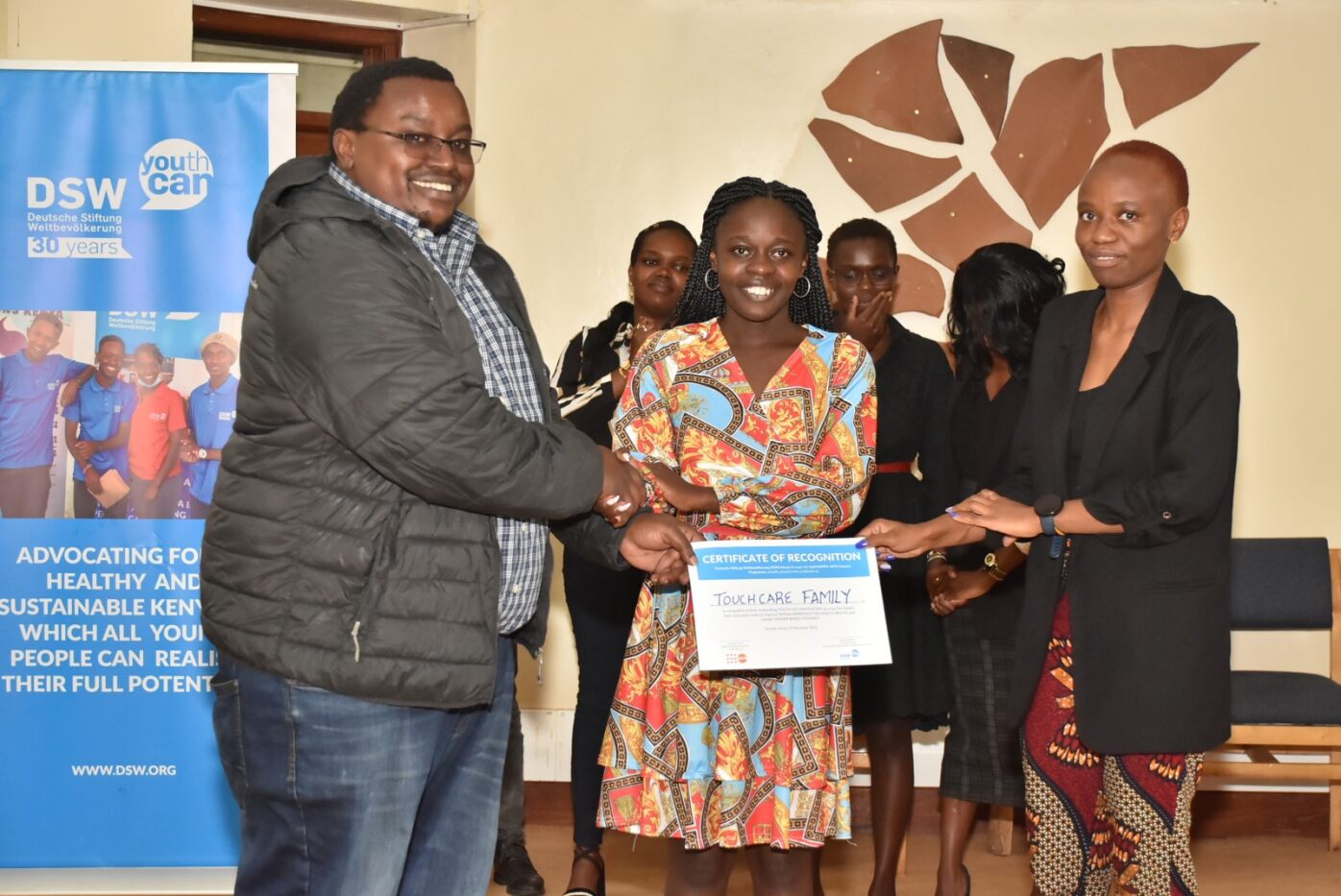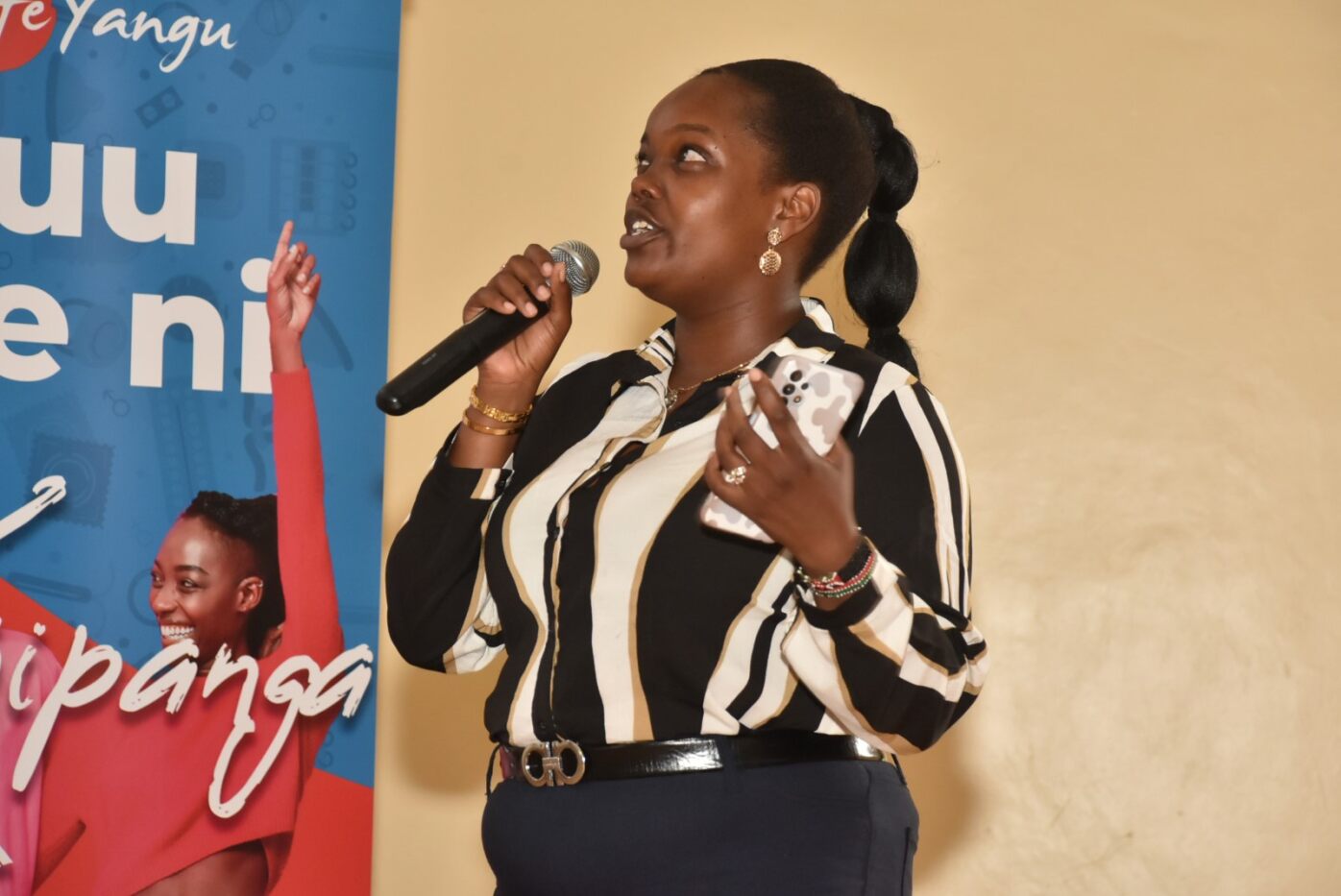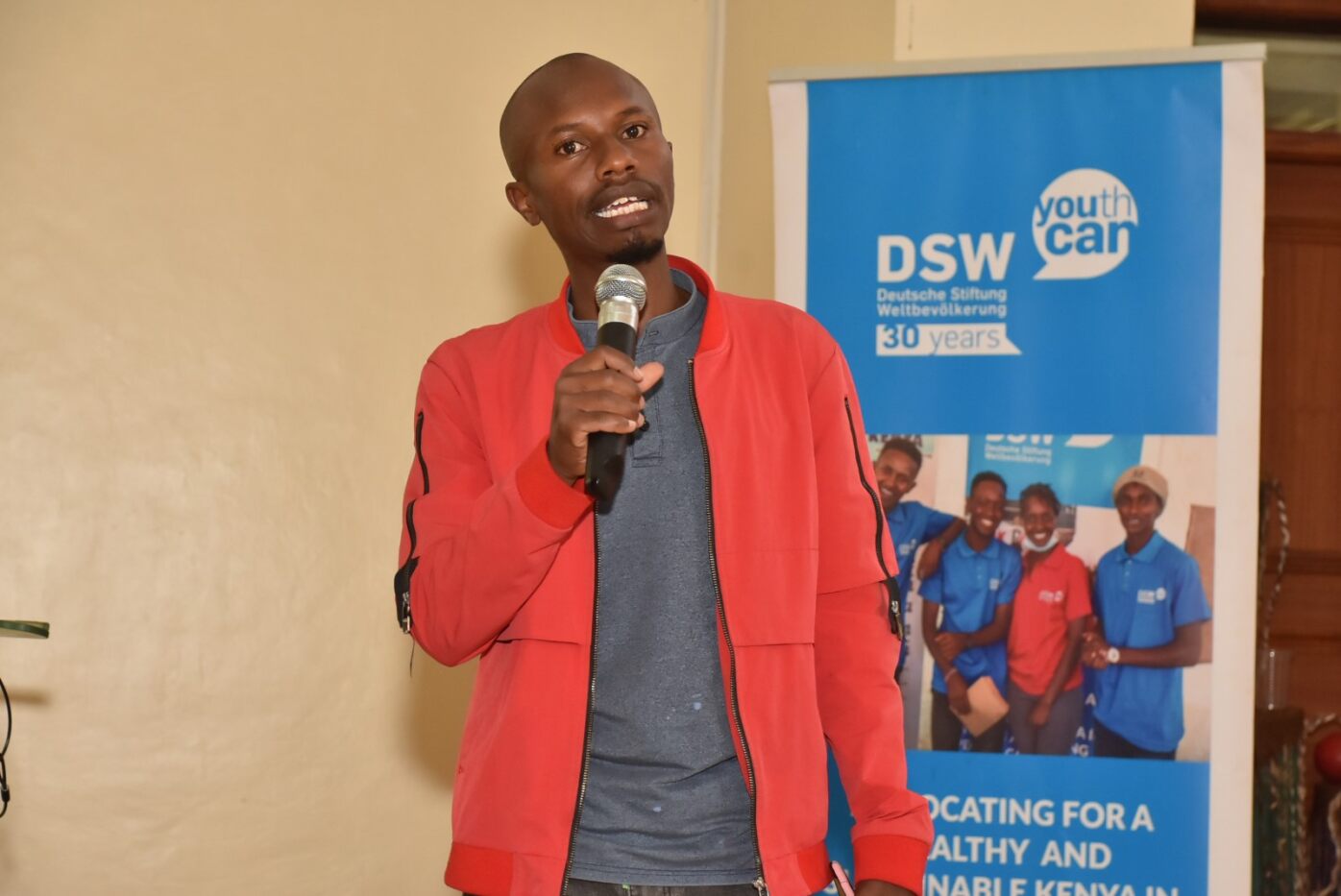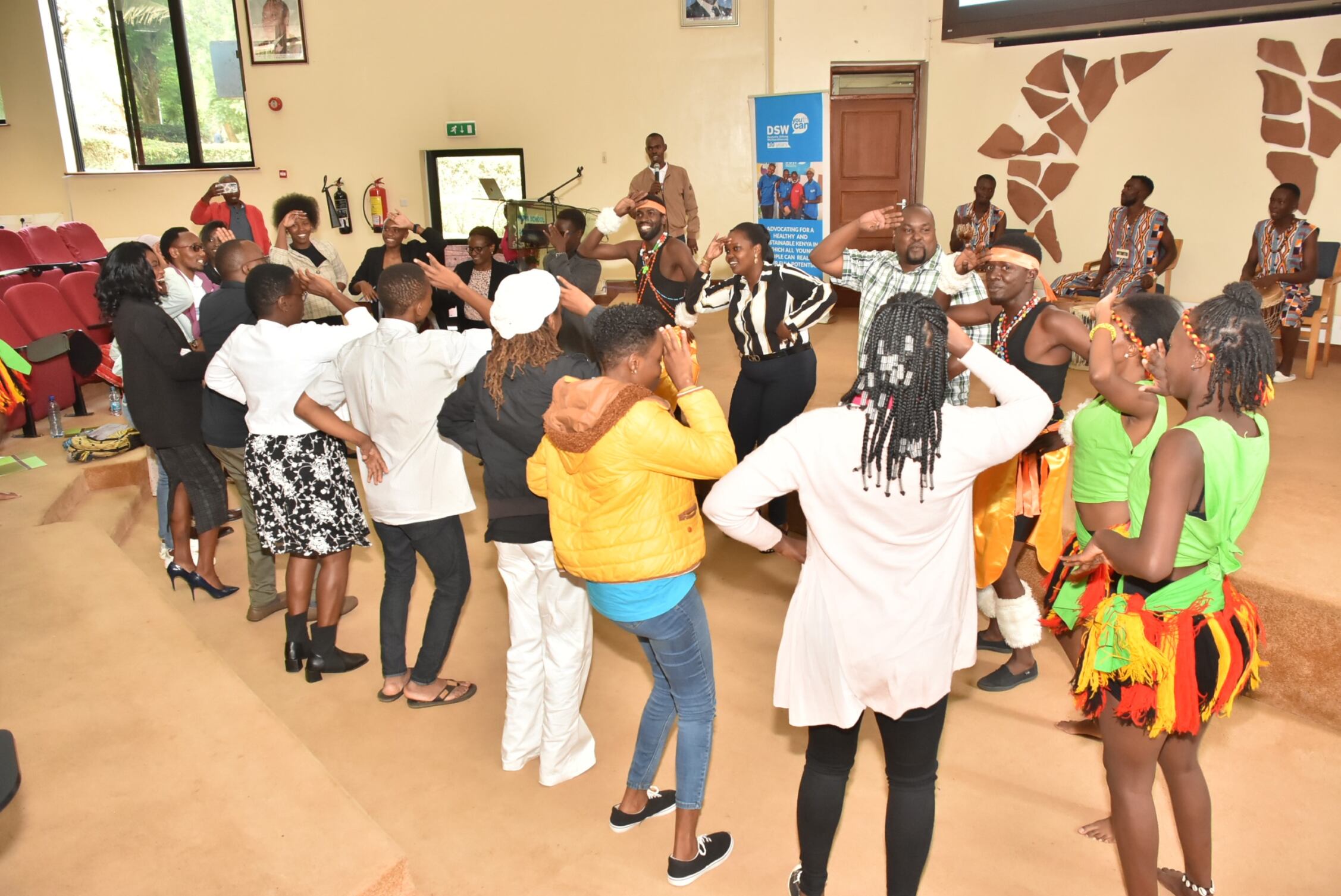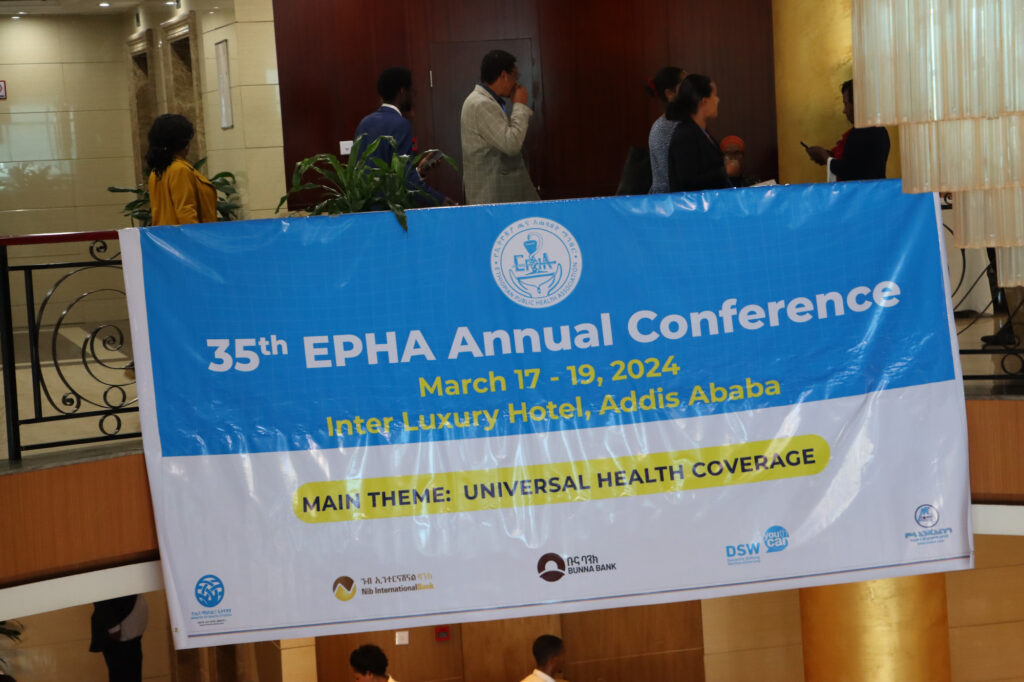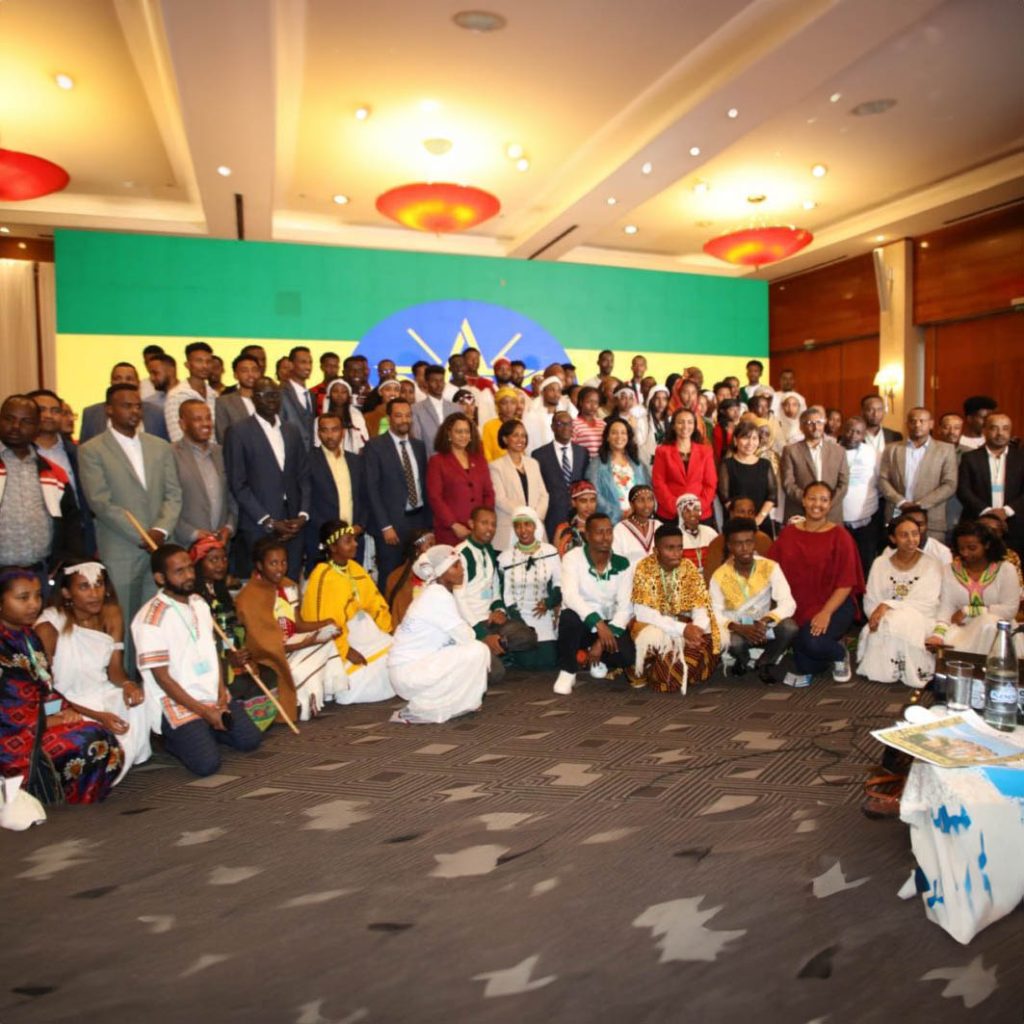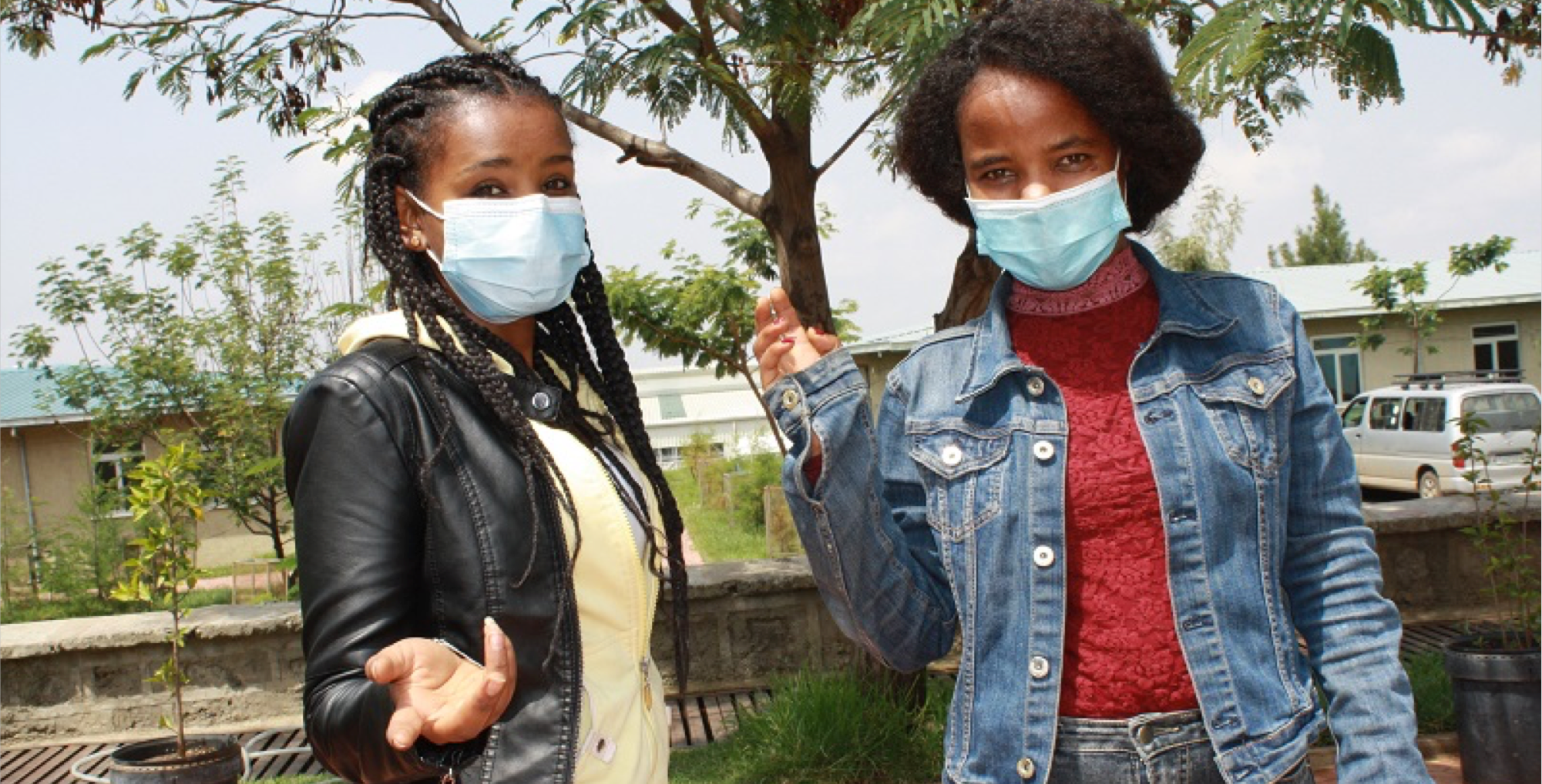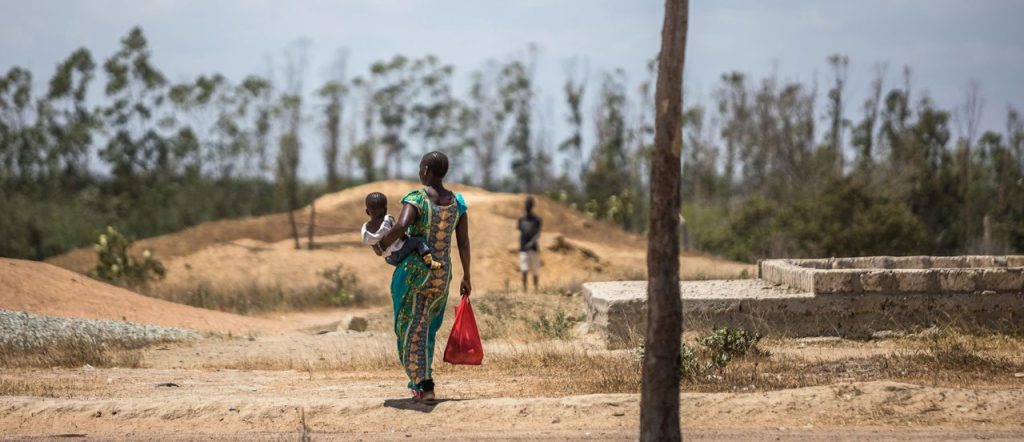DSW and its partners, MSI Zambia and Restless Development Zambia, hosted a side event at the 5th African Youth United Nations Sustainable Development Goals (SDGs) Summit in Lusaka, Zambia.
The event brought together young African leaders, policy-makers, and other stakeholders from more than ten countries to collaborate, share ideas, and strategise on the implementation of the SDGs across the continent. The side event, a panel discussion, was titled Inclusive approaches and the importance of involving adolescents, young peoples and marginalised groups, such as adolescents with disabilities, and adolescents living in rural and other hard-to-reach areas in improving Sexual and Reproductive Health (SRH) services.
Moses Kibet, (18), a DSW adolescent champion from West Pokot, Kenya, was part of the panel that comprised young people and decision makers from Zambia. Moses spoke on youth-led interventions supported by DSW that promote access to SRH information and services in the country.
Moses shared a few approaches, including peer-to-peer learning, where a team of 15 adolescent champions, trained by DSW reach out to their peers with SRH information at the community level.
In addition, the champions, work closely with county decision makers, advocating for allocation of more domestic resources towards interventions such as youth-friendly spaces that promote demand and utilisation of SRH services among young people.
“You know when I walk into a facility and I ask about sexual reproductive health services…the personnel will ask me ‘Why are you having sex’ and this is already a barrier. When we say safe space, it means that young people are comfortable and confident expressing themselves with the healthcare personnel in the room.” Moses Kibet, Adolescent champion, Kenya
Such interventions in Kenya have contributed to the reduction of teenage pregnancy from 18% in 2014 to 15% in 2022, according to the Kenya Demographic and Health Survey. If all African countries adopt similar youth-led interventions, the continent will see a reduction in child marriage and teenage pregnancy cases.
He also highlighted Lifeyangu, a platform established by DSW in collaboration with young people, with the aim of providing accurate and reliable contraception information to the youth in a confidential manner.
The interactive session, attended by 150 delegates, also alluded to SRH Rights challenges faced by adolescents and youth across the continent. They include, lack of youth-friendly spaces, inadequate staffing at facilities, and contraceptives commodity stock-outs.
These challenges were also recognised by Dr. Matildah Simpungwe, the Ministry of Health’s Assistant Director- Adolescent Health-Zambia, during her presentation, where she highlighted the Ministry’s commitment to providing more inclusive services, especially to young people living with disabilities.
“We have done quite a lot as a Ministry to ensure services are more inclusive to adolescents with disabilities. For instance, in collaboration with MSI Zambia, we have developed sign language posters, job aids and charts on family planning and delivery. With support from other partners, we have translated key health documents into braille…” Dr. Matildah Simpungwe, Ministry of Health’s Assistant Director- Adolescent Health-Zambia
Finally, Moses highlighted the work young people are doing on social accountability through the community scorecard.
Social accountability is a citizen-led action to hold public officials and service providers to account for the use of public resources and services delivered.
Community scorecard is a tool applied in a participatory process to rate public services and the performance of a service providers with the aim of identifying failures and gaps in order to improve the quality, efficiency, accessibility, relevance, and accountability in the delivery of public services.
“In this process, we [young people and healthcare providers] come up with a scorecard…with actions points and timelines. As Youth for Health champions, we follow up with the facility on the extent of implementation. This has been effective because when there is that safe space, privacy, and confidentiality, it increases the uptake of reproductive health services among young people.” Moses Kibet, Adolescent champion, Kenya
DSW in collaboration with other Youth for Health Consortium patners in Zambia (MSI Zambia and Restless Development) submitted a call to action for the African continent to respect, promote and protect the rights of young people’s access to SRH services, with major focus on
Allocating domestic resources towards affordable and accessible health education and services;
Improving political commitments, leadership and governance to promote access to reproductive health services; and
Developing policy and legislative frameworks against discriminatory laws and traditions that prevent young people, including those with disabilities, from enjoying sexual and reproductive health wellbeing.
This is foundational to achieving several sustainable development goals including SDG 3 (health and wellbeing), SDG 5 (gender equality) and SDG 6 (reduced inequality).
The Youth for Health Project
The Youth for Health (Y4H) project is a three-year initiative co-funded by the European Union that works to expand access to life-changing adolescent sexual and reproductive healthcare and rights. Its focus is on reaching the poorest and most marginalized adolescent girls, including those living with disabilities, and in rural and hard-to-reach areas of Ethiopia, Ghana, Kenya, Sierra Leone, Tanzania, and Zambia. By unlocking demand and access and contributing towards changes in favor of supportive policies and funding environments, Y4H will increase and sustain access to reproductive choices for girls and young women.
Youth for Health is being implemented by MSI Reproductive Choices together with Deutsche Stiftung Weltbevölkerung (DSW), Centre for the Study of Adolescence (CSA) Kenya, Health Alert Sierra Leone (HASiL), Youth Advocates Ghana (YAG), Sikika in Tanzania, Restless Development Zambia and Youth Network for Sustainable Development (YNSD) in Ethiopia.
For more information on DSW’s role in the Youth for Health project, see our project page.
